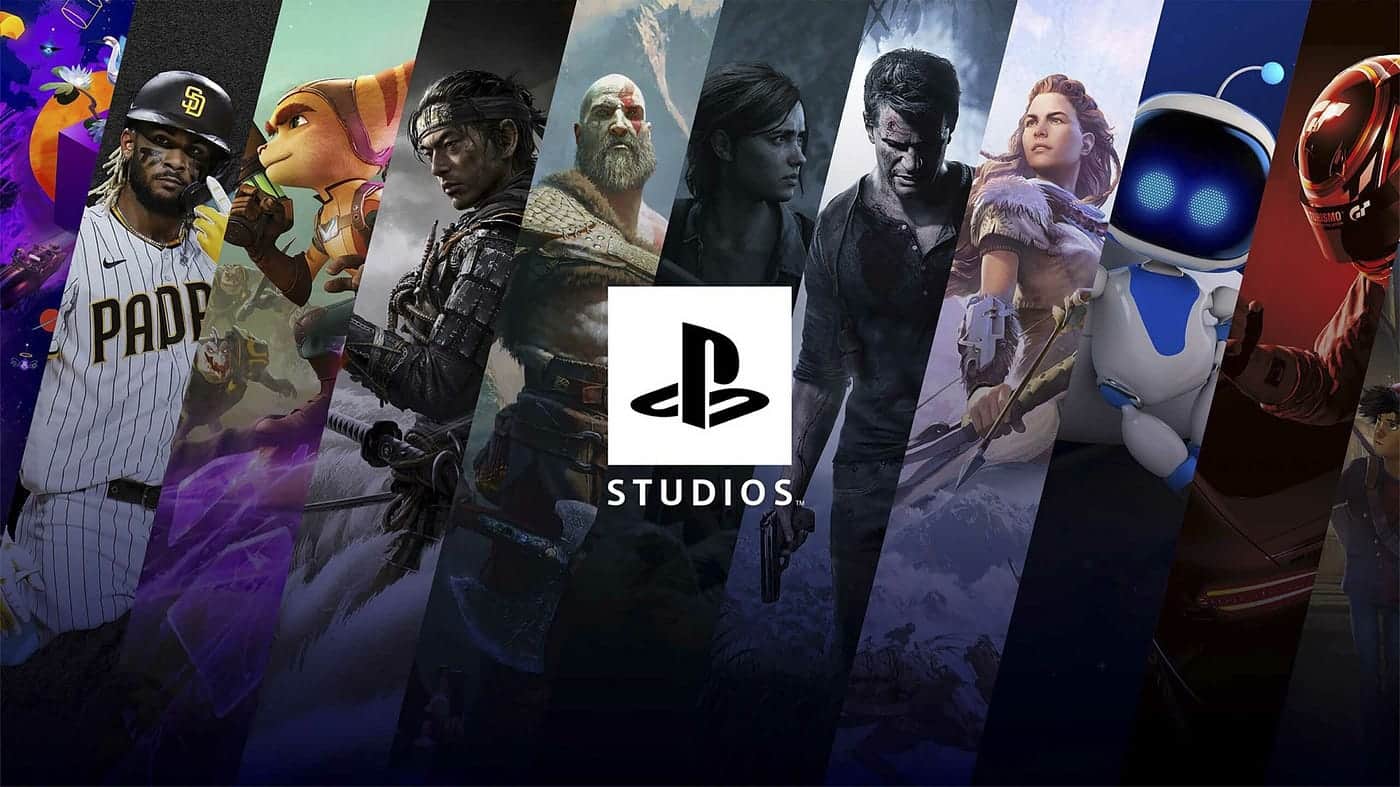Since before the company entered the hardware space with the PlayStation, Sony has had a long and storied history as a game publisher through its Sony Interactive Entertainment label, previously known as Sony Computer Entertainment. But with the introduction of the PlayStation and its runaway success as an industry pillar beginning in the 5th generation, Sony is now synonymous with console exclusives as a key part of its business strategy. Simply put, the best Sony Interactive Entertainment games are the reason that many players buy a PlayStation console in the first place, with some of the greatest titles of a generation only playable on Sony’s now-legendary console family. PlayStation exclusives are system-sellers while also creating a high bar for interactive entertainment, and many of the developers behind these titles eventually join Sony as official first-party studios if not already under the company’s umbrealla.
Battle Arena Toshinden
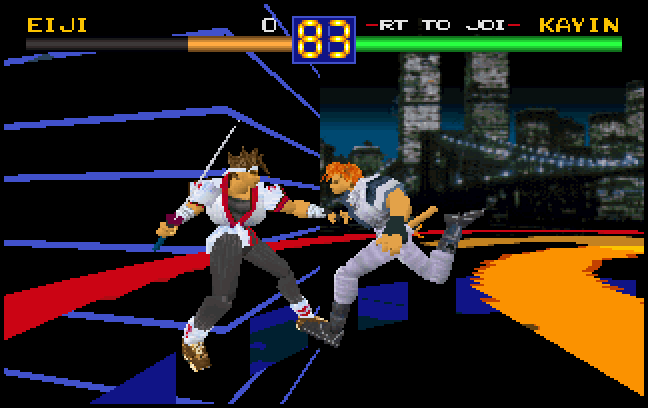
©Battle Arena Toshinden gameplay screenshot - Original
- Release Date — September 9, 1995
- Platform — PlayStation
- Review Aggregate Score — 69% (Mixed or Average)
The Sega Saturn might have launched with the excellent Virtua Fighter, but Sony’s PlayStation was no slouch in the 3D fighter department right out of the gate. Along with Namco’s Tekken, Sony would produce and publish the excellent Battle Arena Toshinden. Long before SoulCalibur would reinvent the wheel for weapons-based fighting games, Battle Arena Toshinden was a full-3D fighting game (character models and fighting arenas) where every fighter wields a signature weapon representative of their fighting style. It’s not especially deep in terms of its mechanics, but it was one of the more novel launch titles for the PS1.
Jumping Flash
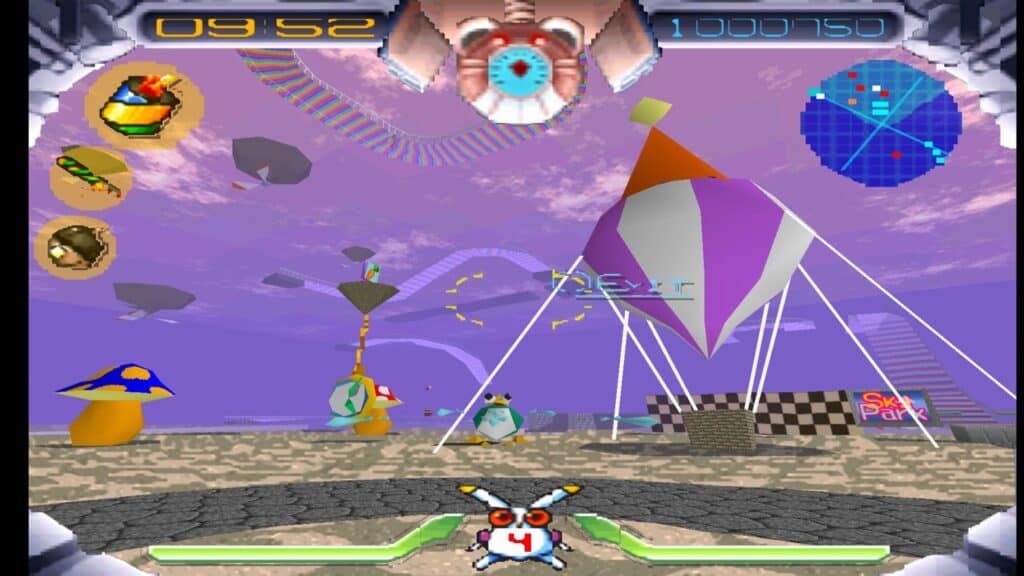
©Jumping Flash gameplay screenshot - Original
- Release Date — November 2, 1995
- Platform — PlayStation
- Review Aggregate Score — 84% (Generally Favorable)
Before the PlayStation’s embrace of Crash Bandicoot as its mascot, the original first-party platformer title for the console is the maniacal Jumping Flash. This first-person platformer is full of both style and substance, with its eye-popping 3D visuals accompanying a surprisingly fun and addictive blend of high-jumping platforming and combat. First-person platformers are fairly rare, especially at the time of Jumping Flash‘s release, and the game would end up being one of the standout launch titles on the PlayStation for its unique premise and satisfying gameplay.
Philosoma
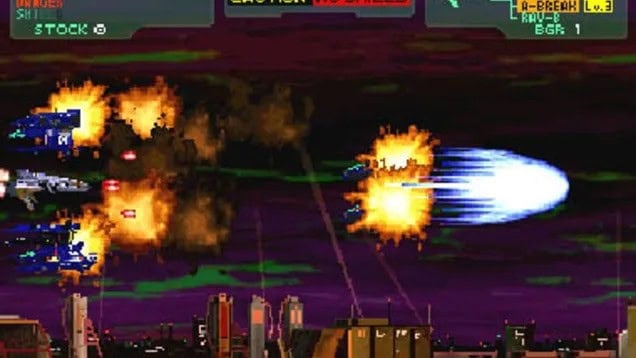
©Philosoma gameplay screenshot - Original
- Release Date — January 30, 1996
- Platform — PlayStation
- Review Aggregate Score — 60% (Mixed or Average)
Most shmups tend to either be horizontally or vertically scrolling, but usually not both. The hybrid nature of its levels, which utilize both vertical and horizontal scrolling, is one of the things that makes early PS1 shmup Philosoma so memorable, but its approachable difficulty and excellent visuals help to elevate it as an important early game in the PS1’s life cycle. That the title is a Sony Computer Entertainment game is also unique, as it’s one of the few shmups that the company would publish before supporting Housemarque in the 7th console generation and beyond.
Warhawk
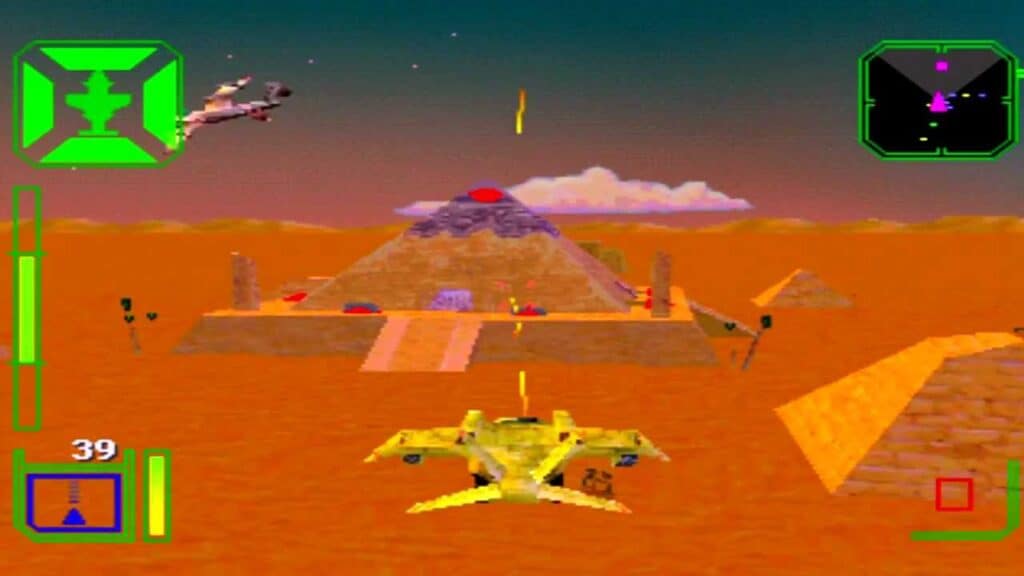
©Warhawk gameplay screenshot - Original
- Release Date — November 10, 1995
- Platform — PlayStation
- Review Aggregate Score — 82% (Generally Favorable)
SingleTrac’s Warhawk is an incredibly competent and entertaining combat flight sim on par with the studio’s excellent Twisted Metal. Both games are early first-party highlights in the PlayStation’s library, and it’s surprising that the Warhawk franchise never quite took off in the same way as Twisted Metal. Regardless, Warhawk still shines as one of the better first-party titles released close to the launch of the PS1, and its implementation of full-3D environments and unique control scheme are still impressive to this day.
Crash Bandicoot
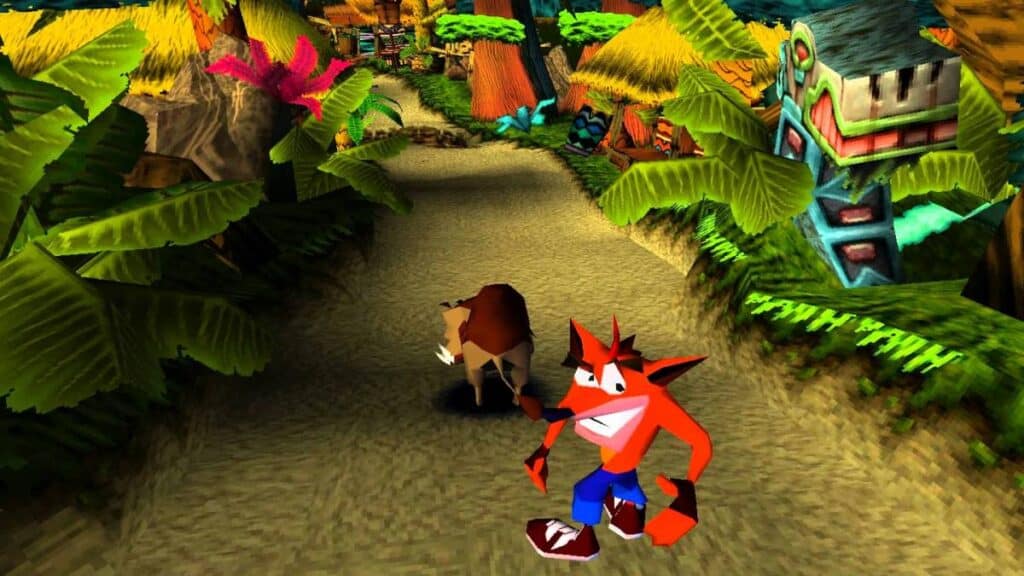
©Crash Bandicoot gameplay screenshot - Original
- Release Date — September 9, 1996
- Platform — PlayStation
- Review Aggregate Score — 80% (Generally Favorable)
Naughty Dog’s Crash Bandicoot represents a watershed moment for the PS1. In an era where consoles practically lived and died by their mascots, Sony needed a figurehead for the PlayStation with the same kind of appeal as Nintendo’s Mario and Sega’s Sonic. Enter Crash Bandicoot, the unhinged marsupial on a mission to stop the evil Dr. Neo Cortex. Crash Bandicoot‘s 3D platforming is just as impressive as Super Mario 64, even if the game utilizes 3D assets on what amounts to pseudo-3D scrolling levels. Regardless, the game’s excellent level design and challenging boss encounters position the original Crash Bandicoot as the best game in the series.
Twisted Metal 2
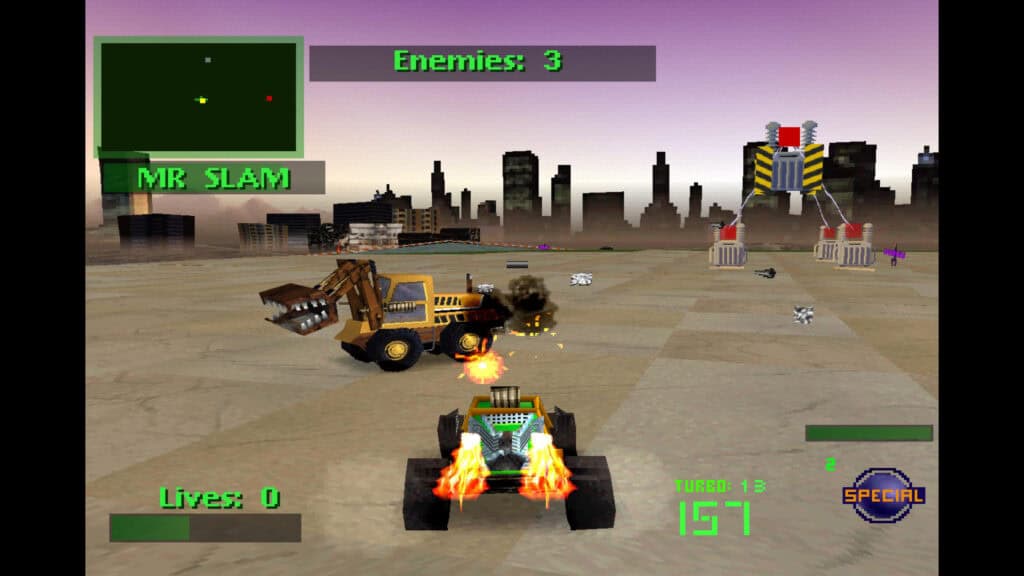
©Twisted Metal 2 gameplay screenshot - Original
- Release Date — November 8, 1996
- Platform — PlayStation
- Review Aggregate Score — 86% (Generally Favorable)
The first Twisted Metal is an excellent game that would quickly establish SingleTrac as one of Sony’s most valuable first-party studios, but its sequel is bigger and better in every conceivable way. Twisted Metal 2 features a wider variety of combatants, better controls and handling during the game’s vehicular combat gameplay and an excellent array of levels rendering real-world cities in its fictional “world tour” of the Twisted Metal tournament. Untill the release of Twisted Metal: Black on PS2, Twisted Metal 2 represents the peak of the series in its initial 32-bit glory.
PaRappa the Rapper
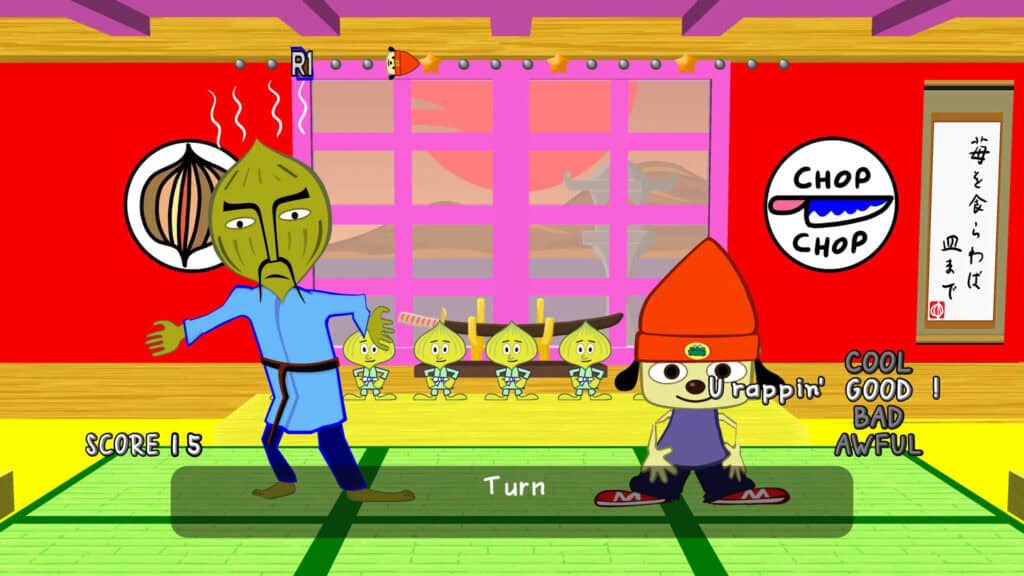
©PaRappa the Rapper gameplay screenshot - Original
- Release Date — November 17, 1997
- Platform — PlayStation
- Review Aggregate Score — 90% (Universal Acclaim)
Releasing just a few months after the launch of Final Fantasy VII would make the PS1 the must-have console of the generation, PaRappa the Rapper is just as important and iconic a title in the console’s lifecycle, albeit in a totally different way from the first 3D Final Fantasy. The first PaRappa the Rapper practically invents the modern music/rhythm game. Though there’s no way developer NanaOn-Sha could have known it at the time, the in-time button inputs and infectious music of PaRappa the Rapper walked so that future hits like Guitar Hero could run. Beyond its importance to the genre, though, PaRappa the Rapper is just an excellent and incredibly charming game with unforgettable music and a feel-good message.
Syphon Filter
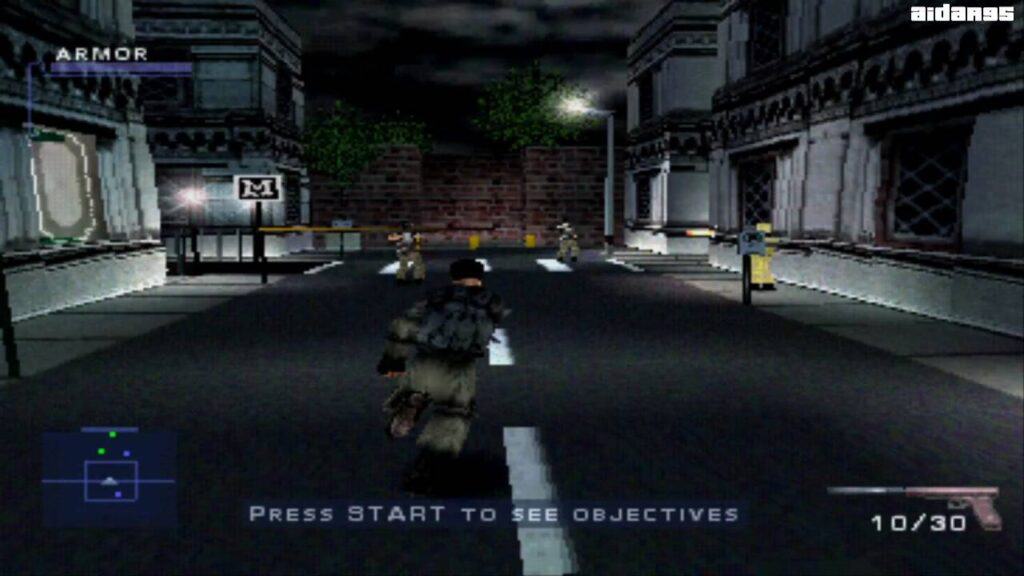
©Syphon Filter gameplay screenshot - Original
- Release Date — February 16, 1999
- Platform — PlayStation
- Review Aggregate Score — 90% (Universal Acclaim)
Although a lot of reviews would compare Syphon Filter to the previous year’s Metal Gear Solid at the time of its release, the truth is that the games present very different takes on the military-action subgenre. Where Metal Gear Solid is more focused on stealth as a means to avoid conflict and places a great emphasis on its story for philosophical musings, Syphon Filter encourages combat in both its silent takedowns and competent gunplay, and its story is more akin to an action thriller than a politically-charged arthouse film. As such, Syphon Filter is about as close as gamers ever got to a genuine spy game on the PS1, and it’s one of the console’s standout action titles.
Ape Escape
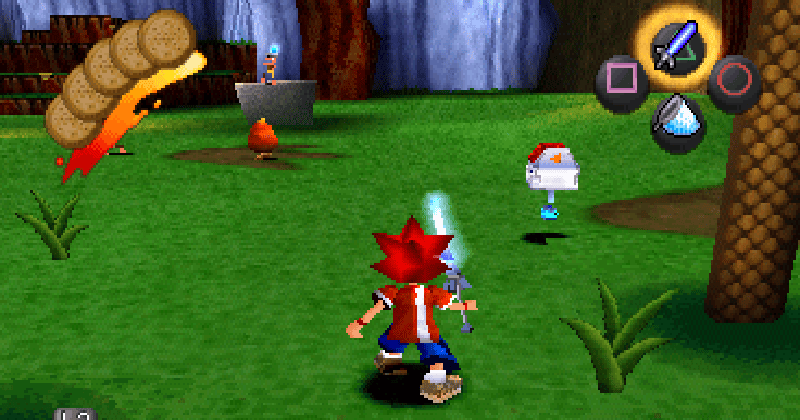
©Ape Escape gameplay screenshot - Original
- Release Date — June 22, 1999
- Platform — PlayStation
- Review Aggregate Score — 90% (Universal Acclaim)
In terms of first-party Sony platformers on the PS1, the only game that can even come close to challenging Crash Bandicoot for genre supremacy is the incredible Ape Escape. Smartly, the game requires the use of the (at the time) new DualShock controller, hammering home the difference in feel between using a d-pad and an analog stick in an age before their use became ubiquitous with video game controllers. Using the right analog stick to control the protagonist’s various implements to catch wayward apes is ingenious, and the series’ gameplay and controls never felt quite as good and as refined as they do in the first Ape Escape.
Omega Boost
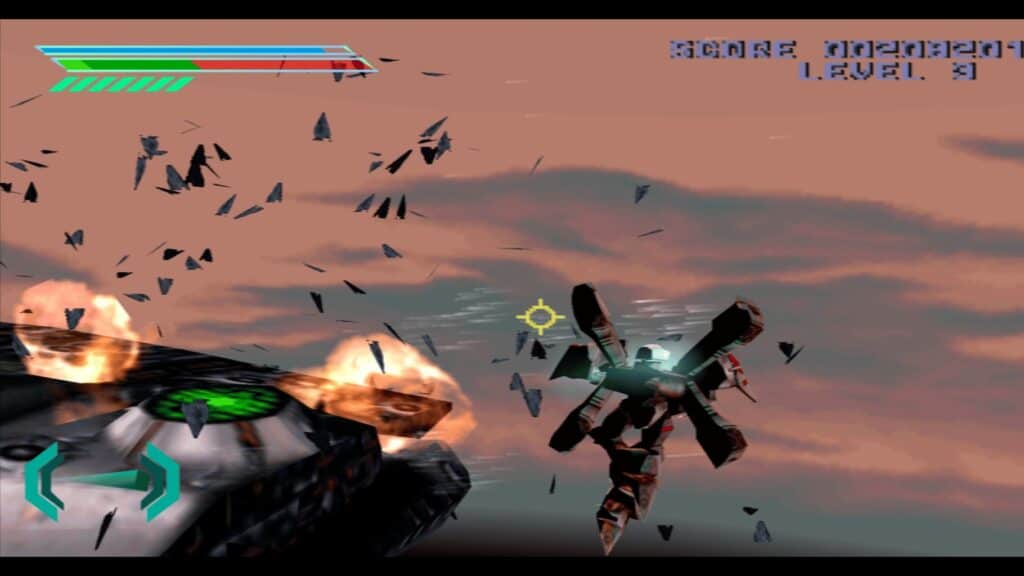
©Omega Boost gameplay screenshot - Original
- Release Date — September 14, 1999
- Platform — PlayStation
- Review Aggregate Score — 73% (Mixed or Average)
If there’s one thing that players can knock Omega Boost for, it’s that the game has an incredibly short single-player campaign and not much else to offer. However, the title’s gameplay and visuals position it as one of the best shooters on the PS1 and yet another example of developer Polyphony Digital’s skill with the PlayStation hardware, achieving similarly impressive graphics as the developer’s flagship series Gran Turismo. Action in Omega Boost is frantic and controls well, and the title’s relatively short length only leaves players wanting more. Here’s hoping that retrospective looks at Omega Boost inspire Polyphony Digital and Sony to return to the franchise for a second game.
Crash Team Racing
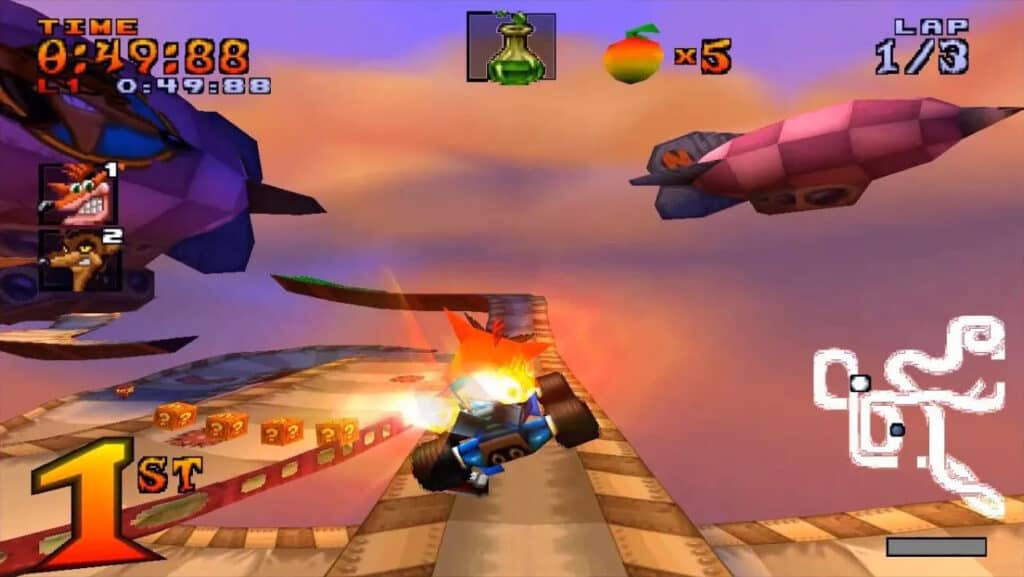
©Crash Team Racing gameplay screenshot - Original
- Release Date — October 19, 1999
- Platform — PlayStation
- Review Aggregate Score — 89% (Generally Favorable)
Just like how it would seem near-impossible for a 3D platformer to be in the same league as Super Mario 64, Mario Kart 64‘s dominance in the kart-racing genre was practically unshakable. Then along comes Crash Team Racing. Just like Crash Bandicoot before it, Crash Team Racing showcases Naughty Dog’s talent in putting its marsupial mascot into excellent games that stand toe-to-toe with Nintendo’s flagship titles. Crash Team Racing isn’t just one of the only kart racing games that can compare to Mario Kart 64, it’s still one of the best games in the racing subgenre. and one of the PS1’s must-have titles.
The Legend of Dragoon
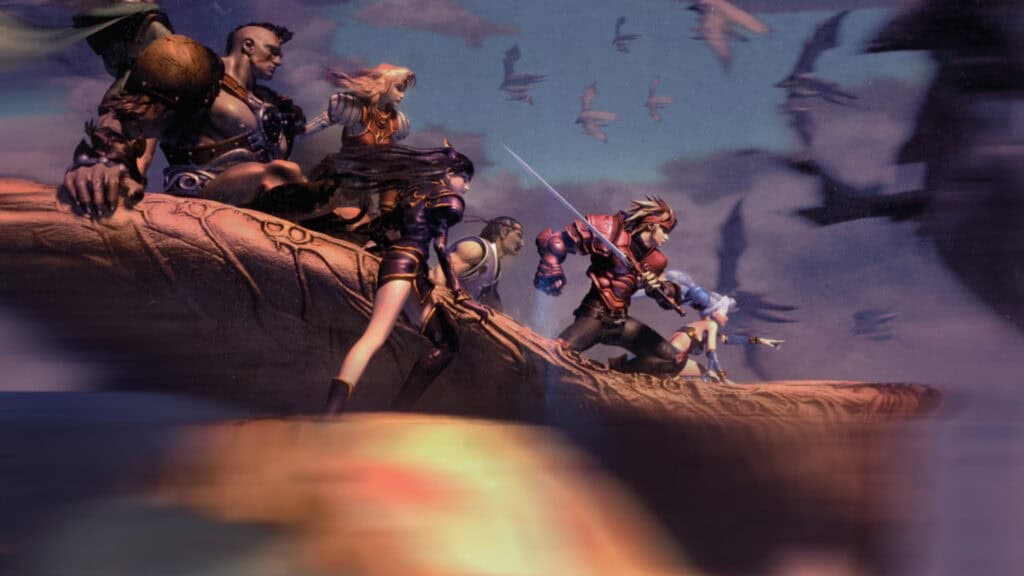
©The Legend of Dragoon official artwork - Original
- Release Date — June 13, 2000
- Platform — PlayStation
- Review Aggregate Score — 74% (Mixed or Average)
Final Fantasy VII‘s mainstream success would eventually give way to a full-blown renaissance of the JRPG in North America, prompting Sony to get in on the action with its own first-party RPG series. Though Sony Computer Entertainment would publish the Wild Arms games as some of the early JRPG highlights on the PS1, The Legend of Dragoon marks the first time that Sony would utilize an internal studio to develop a game in the genre, which was then published as a Sony Computer Entertainment title as the PS1’s only first-party RPG. The Legend of Dragoon might be heavy on cutscenes, but it brings enough unique ideas to the table to support its continued cult-classic status as a criminally overlooked game on Sony’s first console.
Dark Cloud
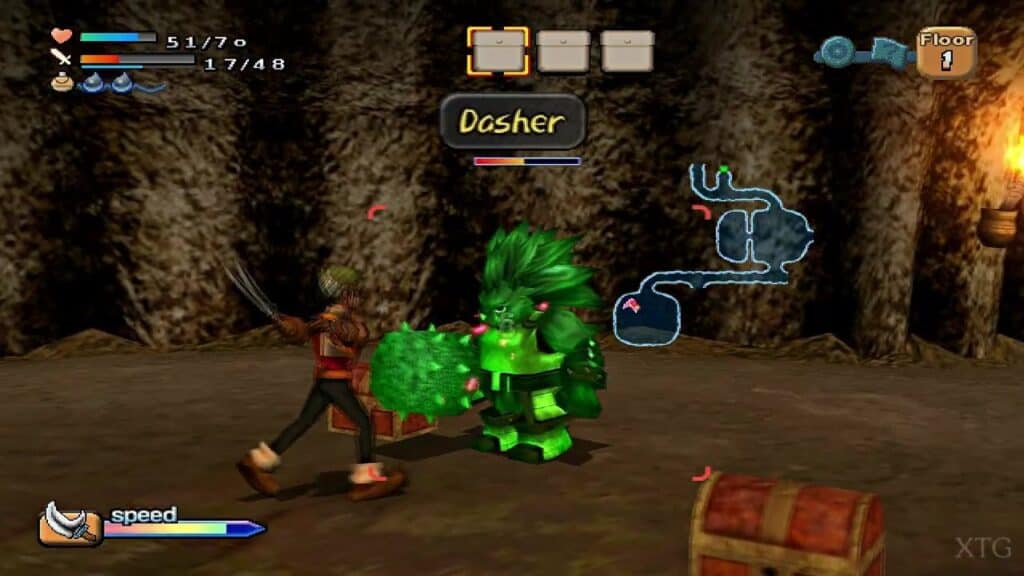
©Dark Cloud gameplay screenshot - Original
- Release Date — May 28, 2001
- Platform — PlayStation 2
- Review Aggregate Score — 80% (Generally Favorable)
Japanese game studio Level-5 might be more well-known now for the Professor Layton and Ni No Kuni games, but its tenure as a first-party Sony studio also produced some incredible titles. Among them is the excellent Dark Cloud, which blends the action-RPG hack n’ slash combat of a dungeon-crawler with city building similar to the SNES classic ActRaiser. It’s not a particularly challenging game, but therein lies the genius of Dark Cloud, as both halves of its gameplay are perfectly balanced to not overwhelm the player and remain enjoyable.
Twisted Metal: Black
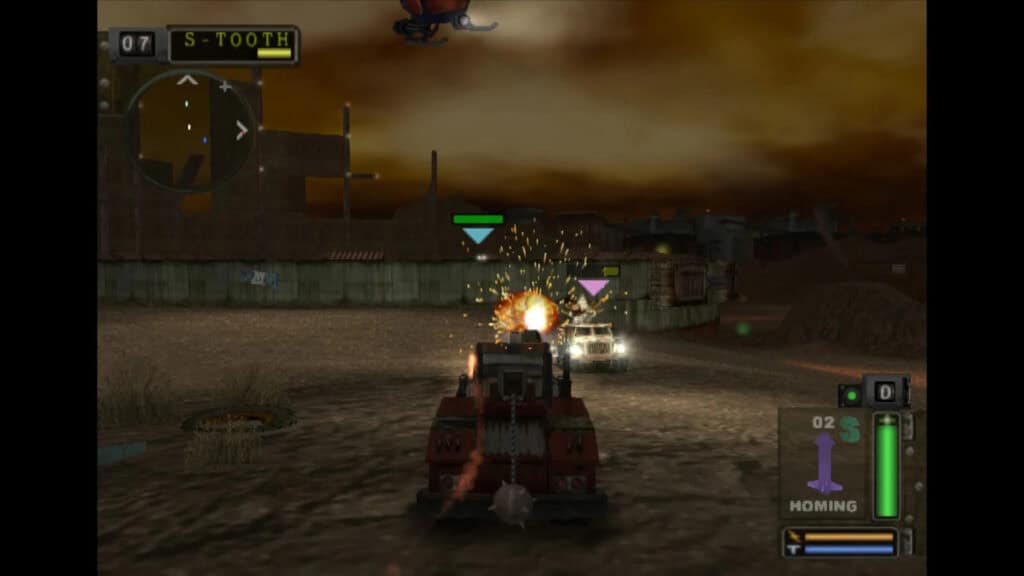
©Twisted Metal: Black gameplay screenshot - Original
- Release Date — June 28, 2001
- Platform — PlayStation 2
- Review Aggregate Score — 91% (Universal Acclaim)
The second game in the Twisted Metal series would wind up being the best entry in the franchise’s initial run of 4 games, with the franchise passing from SingleTrac to 989 Studios for the remainder of the series’ PS1 entries. Giving the reins back to the original developer for the first series entry on PS2 is a stroke of genius on Sony’s part, with Twisted Metal: Black still standing as the best entry in the vehicular combat franchise. As the name implies, Twisted Metal: Black is a decidedly dark affair that returns to the serious and grim nature of the original games in the series and moves away from the cartoonish self-parody the franchise had begun to embrace.
Ico
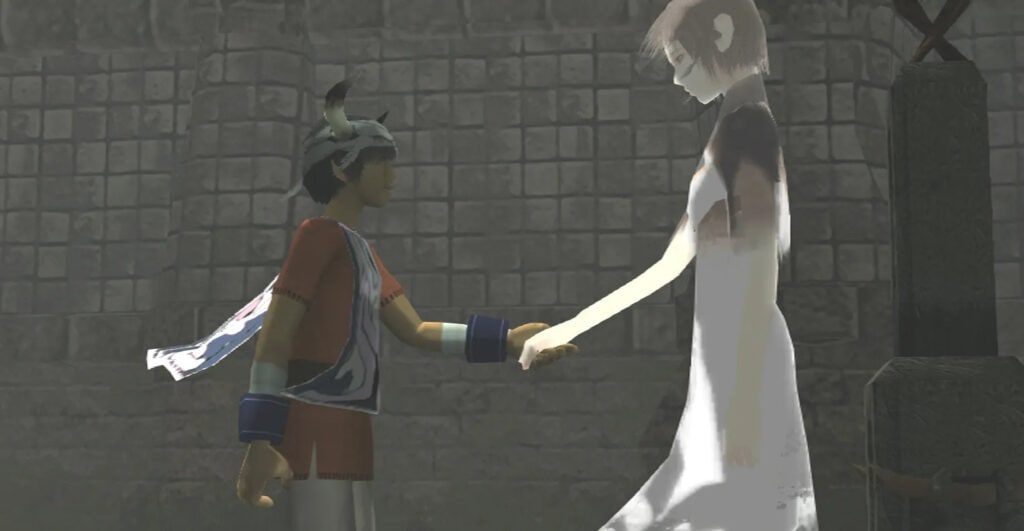
©Ico gameplay screenshot - Original
- Release Date — September 24, 2001
- Platform — PlayStation 2
- Review Aggregate Score — 90% (Universal Acclaim)
Despite the fact that escort missions often elicit eye-rolls from gamers in the modern era, Ico was able to take that concept and make an entire game out of it that still shines as an exemplar of impeccable action-adventure design. Combat and puzzle-solving rule the day in Ico, helping the title to earn more than its fair share of Zelda comparisons, but the bond between the player protagonist and the princess they must safeguard throughout the game’s massive castle helps to differentiate Ico as its own unique experience. Years later, Ico is still influencing contextual and environmental storytelling in games and is one of the PS2’s definitive titles.
Jak and Daxter: The Precursor Legacy
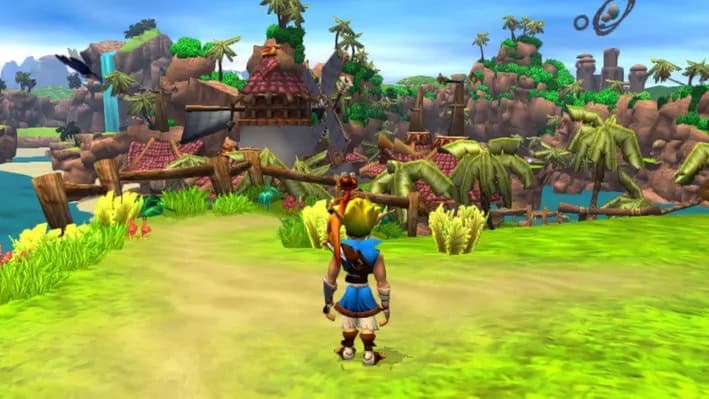
©Jak and Daxter: The Precursor Legacy gameplay screenshot - Original
- Release Date — December 4, 2001
- Platform — PlayStation 2
- Review Aggregate Score — 90% (Universal Acclaim)
Jak and Daxter isn’t just a great follow-up to Naughty Dog’s work on the Crash Bandicoot franchise, it’s single-handedly responsible for the trend of “collect-a-thon” platformers that would become the norm in the 6th console generation across titles like Ratchet & Clank, Sly Cooper, and even the next mainline Mario title. Interestingly, there’s also a bit of an action slant to Jak and Daxter that helps it to exist as the connective tissue between Crash Bandicoot and Naughty Dog’s flagship franchise on the PS3, Uncharted. The Jak and Daxter series’ second and third entries are great games in their own right, but the first stands as the purest distillation of Naughty Dog’s vision for the franchise.
Hot Shots Golf 3
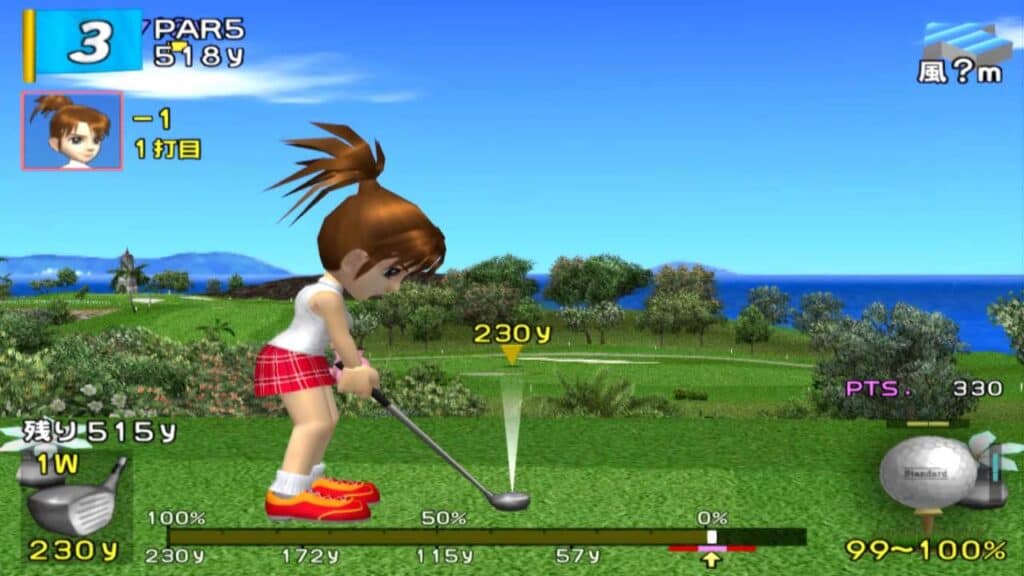
©Hot Shots Golf 3 gameplay screenshot - Original
- Release Date — March 12, 2002
- Platform — PlayStation 2
- Review Aggregate Score — 85% (Generally Favorable)
Sports games are a must for any console, and Sony’s first-party offerings would typically play second fiddle to third-party publishers like Electronic Arts and their officially licensed sports games. One of the rare exceptions is the Hot Shots Golf/Everybody’s Golf franchise, which is a mechanically-deep but still accessible and fun golf game with wacky characters and some excellent visuals. The best game in the series is arguably the franchise’s first entry on PS2, hot Shots Golf 3, which is still perhaps the best-balanced game in the franchise despite years of subsequent entries.
The Mark of Kri
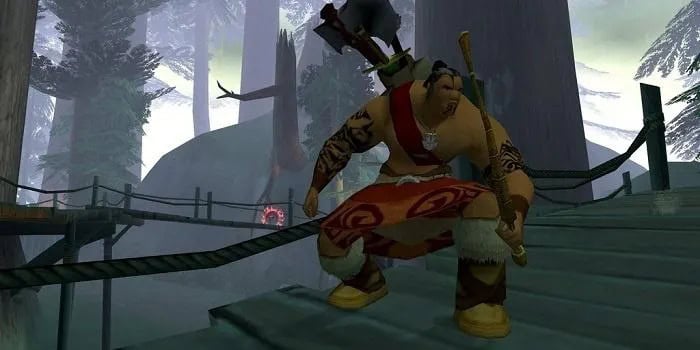
©Mark of Kri gameplay screenshot - Original
- Release Date — July 29, 2002
- Platform — PlayStation 2
- Review Aggregate Score — 80% (Generally Favorable)
The Mark of Kri is about as close as one can get to an action-packed and R-rated animated Disney film. With some excellent art, animation, and visuals and a truly unique combat system, The Mark of Kri stands out among third-person action games of the era as a challenging and violent title centering around a tale of revenge that doesn’t pull any punches. The series would receive a quasi-sequel on the PS2, but it’s a wonder that Sony hasn’t resurrected The Mark of Kri with either a follow-up, remaster, or remake on modern hardware in the hands of one of its many talented first-party studios.
The Getaway
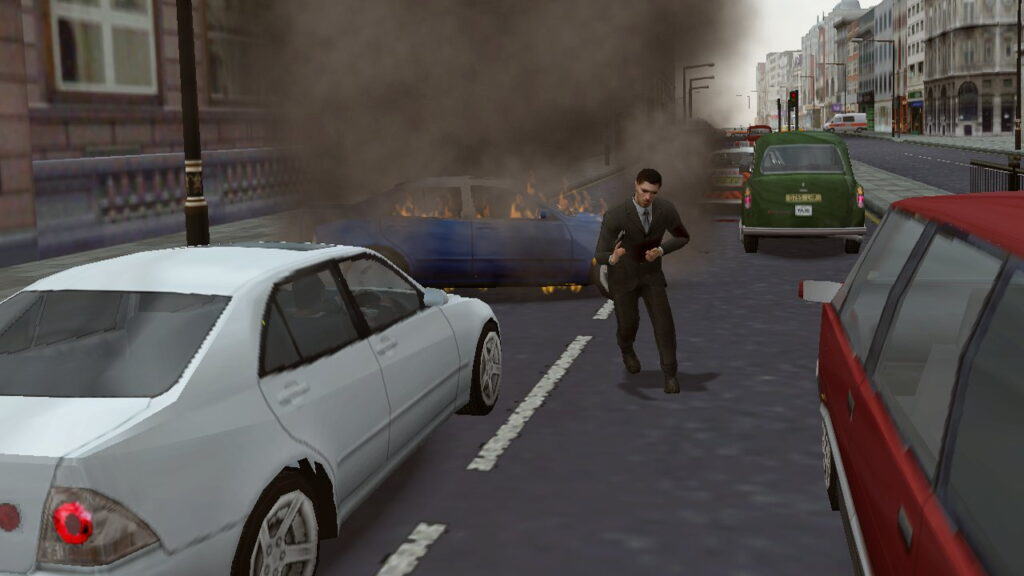
©The Getaway gameplay screenshot - Original
- Release Date — January 21, 2003
- Platform — PlayStation 2
- Review Aggregate Score — 72% (Mixed or Average)
Though it received many comparisons to the PS2 Grand Theft Auto games (III and Vice City) at the time of its release, the truth is that The Getaway is a much more focused and linear experience than Rockstar Games’ open-world epics. As a result, the story on display in The Getaway takes center stage and adds context to the game’s excellent car chases and on-foot action. Story and character development take precedence over the freedom of an open-world sandbox in its beautifully rendered version of a grim London, resulting in The Getaway being the closest thing possible to playing through an interactive Guy Ritchie film.
SOCOM II U.S. Navy SEALs
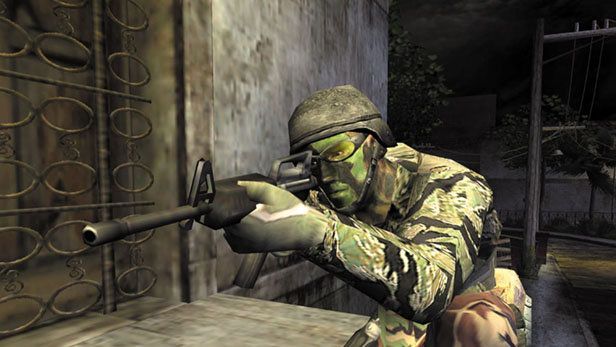
©SOCOM II U.S. Navy SEALs gameplay screenshot - Original
- Release Date — November 4, 2003
- Platform — PlayStation 2
- Review Aggregate Score — 87% (Generally Favorable)
Sony and first-party studio Zipper Interactive would foreshadow the coming importance of online gaming with the excellent SOCOM U.S. Navy SEALs, and its sequel is somehow even better. This tactical third-person shooter has an excellent campaign for single-player gameplay, but the online multiplayer mode is where the title truly shines as one of the best experiences of the generation. The fact that there were versions of the game that came packaged with the PS2’s modem accessory for online functionality only serves to underscore how important the online multiplayer was to the full SOCOM II experience.
Sly 2: Band of Thieves
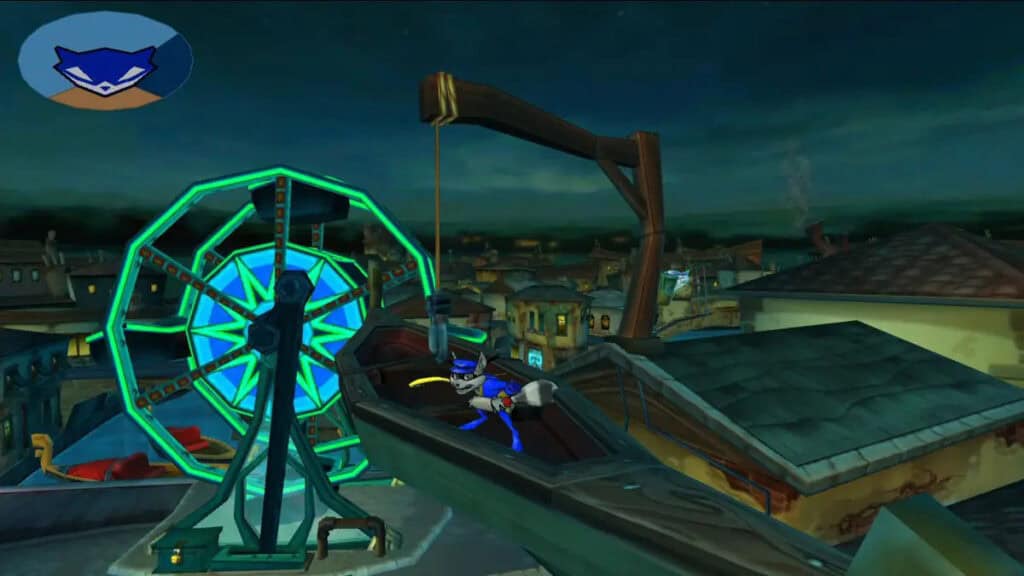
©Sly 2: Band of Thieves gameplay screenshot - Original
- Release Date — September 14, 2004
- Platform — PlayStation 2
- Review Aggregate Score — 88% (Generally Favorable)
Unlike similar series Jak and Daxter and Ratchet & Clank, whose second entries somewhat lose the plot in comparison to the excellent first and third games in those franchises, Sly 2: Band of Thieves is the best game in the excellent stealth-platforming Sly Cooper games. The title’s excellent cel-shaded visuals belie the fact that Sly 2‘s stealth gameplay is every bit as refined and challenging as the best Metal Gear or Splinter Cell games, and the platforming and traversal are so fluid and satisfying as to give the best Mario titles a run for their money. Sly 2 is a game all about pulling off the perfect heist, and in crafting the game developer Sucker Punch pulled off something of a perfect heist itself.
Killzone
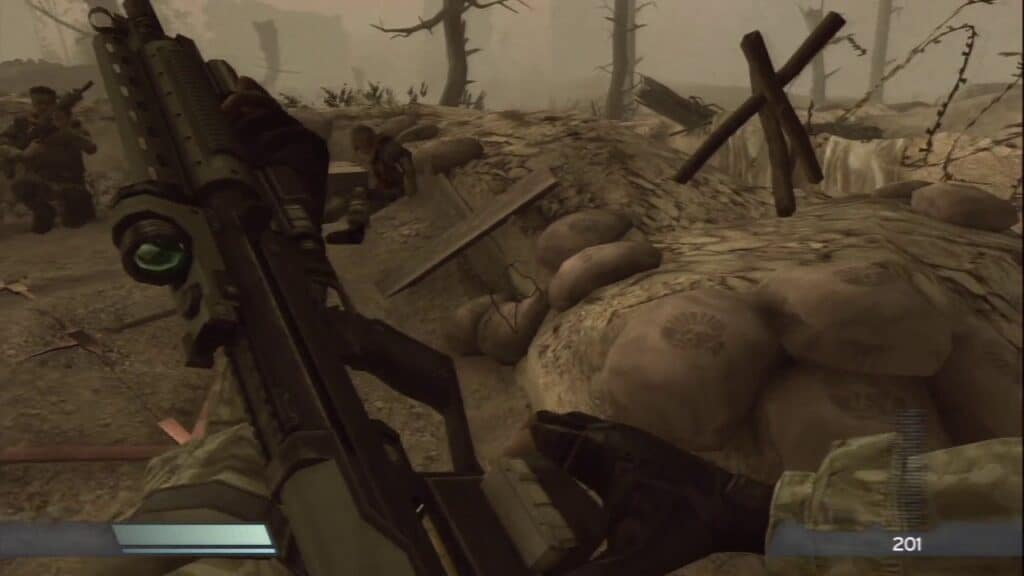
©Killzone gameplay screenshot - Original
- Release Date — November 2, 2004
- Platform — PlayStation 2
- Review Aggregate Score — 70% (Mixed or Average)
It might not be the “Halo-killer” it was touted as at the time, but Killzone is nonetheless an extremely competent and entertaining FPS that would help birth one of the PlayStation brand’s flagship franchises. The first Killzone is much more difficult than later games in the series, and it borrows liberally from Halo‘s playbook with regenerating health, two weapon slots, and an emphasis on “push-forward” gameplay through its sprawling campaign. Though it’s somewhat held back by the limitations of the PS2 hardware and its visuals are slightly drab, FPS fans can find a lot to love about Killzone and its excellent single-player experience.
Ratchet & Clank: Up Your Arsenal
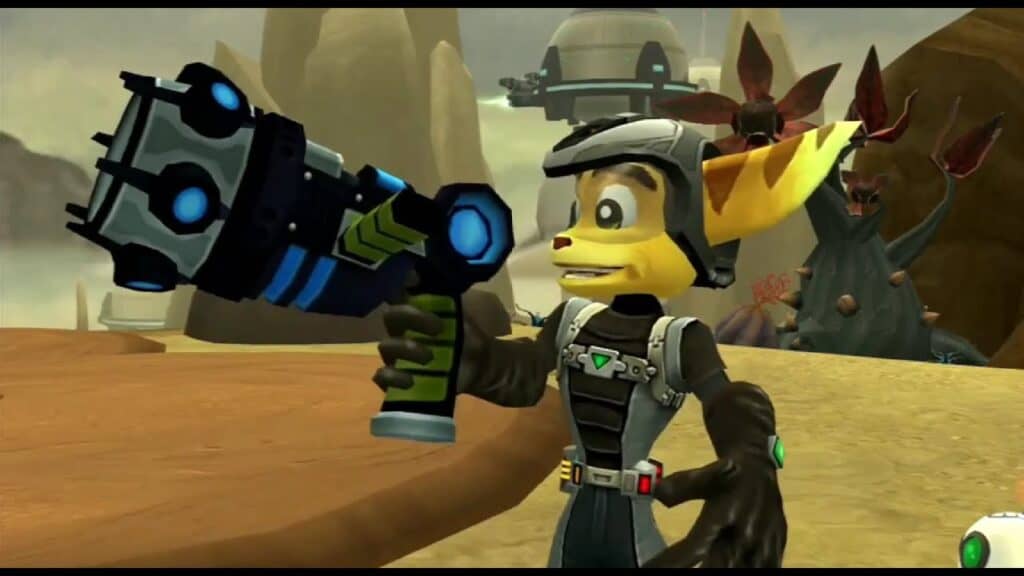
©Ratchet & Clank: Up Your Arsenal gameplay screenshot - Original
- Release Date — November 3, 2004
- Platform — PlayStation 2
- Review Aggregate Score — 91% (Universal Acclaim)
The third game in the Ratchet & Clank franchise fully underscores what makes the series so special in the first place. Insomniac’s unique shooter-platformer hybrid mixes in just enough zany weapon designs and off-the-wall alien species to help it stand out from the other “collect-a-thon” platformer games on the PS2, and those elements have never been as pitch-perfect as they are in Ratchet & Clank: Up Your Arsenal. In addition to its excellent gameplay, Up Your Arsenal also features a gripping and hilarious story that proves the game’s titular heroes to be worthy of their own feature-length animated film.
Gran Turismo 4
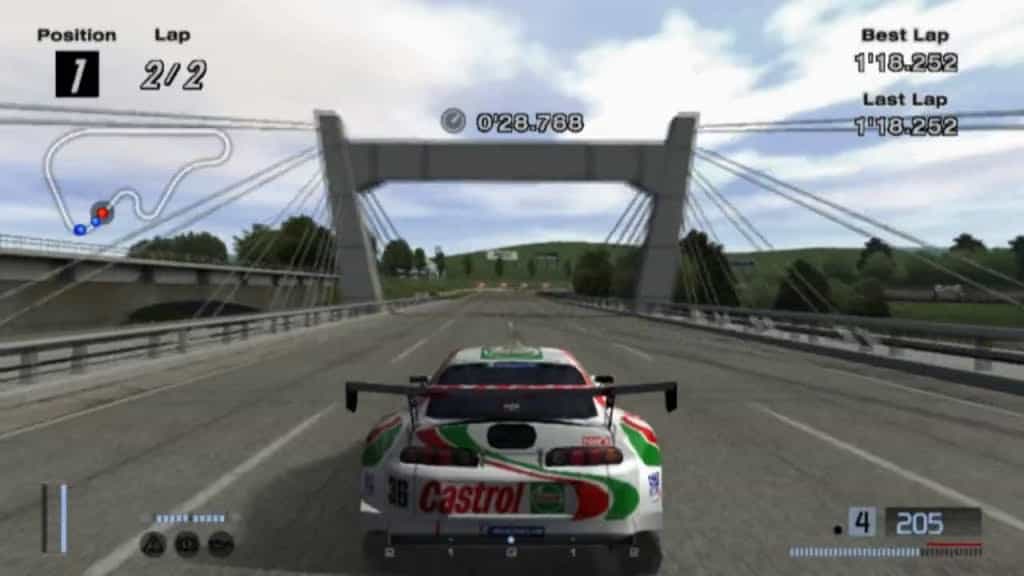
©Gran Turismo 4 gameplay screenshot - Original
- Release Date — February 22, 2005
- Platform — PlayStation 2
- Review Aggregate Score — 89% (Generally Favorable)
Picking a favorite Gran Turismo game is like trying to decide on a favorite child. Every title in the series has its merit as one of the definitive games of its generation, and the series continues to iterate in meaningful ways all while serving as a technical showpiece for the power of the current PlayStation hardware. That said, if forced to pick, Gran Turismo 4 makes a strong case for being the best game in the series thanks to its incredible visuals and more streamlined campaign in comparison to previous entries. Gran Turismo and Gran Turismo2 immediately raised the bar for simulation racing games, but Gran Turismo 4 raises it again in a way that arguably has yet to be met by any later entry in the franchise.
God of War
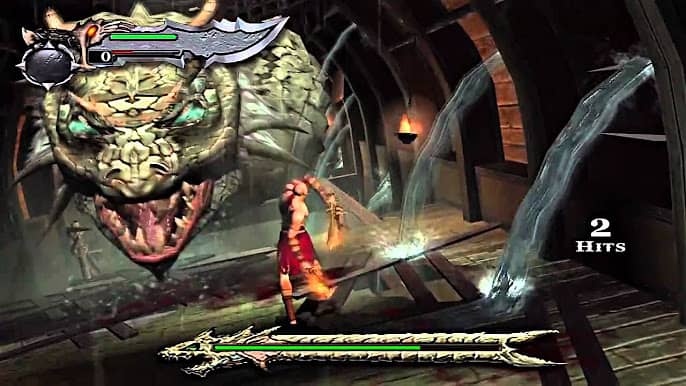
©God of War gameplay screenshot - Original
- Release Date — March 22, 2005
- Platform — PlayStation 2
- Review Aggregate Score — 94% (Universal Acclaim)
The character action might have received its first true entry on the PS2 in the excellent Devil May Cry, but perhaps no other game is as important to the genre as the now-legendary God of War. Coming from former SingleTrac head and Twisted Metal creator David Jaffe, the original God of War is a completely over-the-top action game with stunning visuals, awe-inspiring setpiece moments, and some of the best combat ever seen in the character action genre. It’s no secret that the success of the first God of War would spawn one of Sony’s most important first-party franchises, and it’s all thanks to the potency of Kratos’ initial adventure.
Shadow of the Colossus
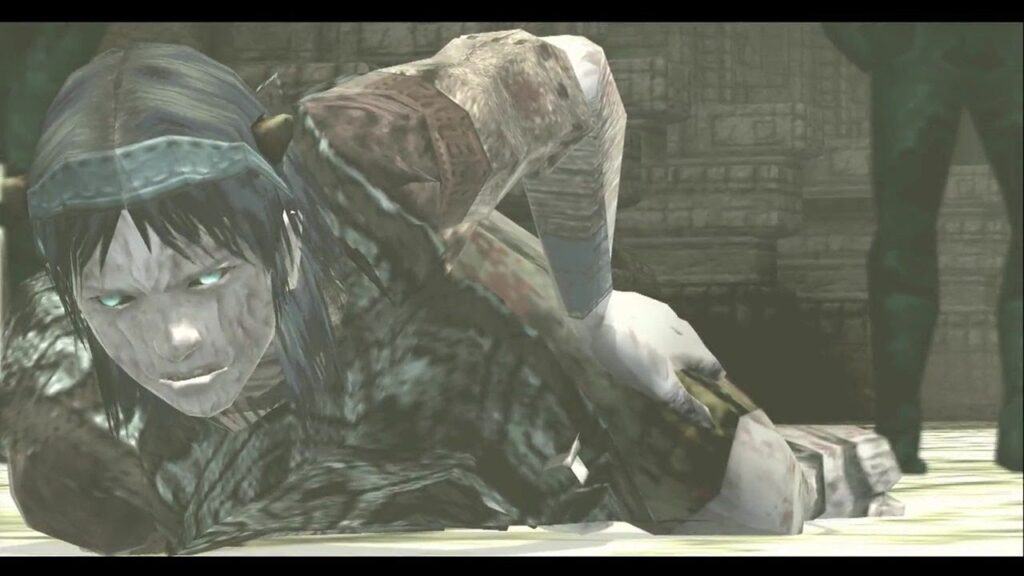
©Gameplay screenshot - Original
- Release Date — October 18, 2005
- Platform — PlayStation 2
- Review Aggregate Score — 91% (Universal Acclaim)
Team Ico’s follow-up to the early PS2 classic Ico retains the distinct visual look of that game but emphasizes combat whereas Ico was more focused on adventure and puzzle-solving. The thread linking both games, though, is the emotionally charged tales that each game tells, and the tragic story of Wander and his systematic hunting of the last remaining colossi goes down as one of the best narratives in the history of gaming. Beyond its excellent story, though, Shadow of the Colossus is an impeccable action-adventure game centered around the spectacle of the boss fights with the titular beings dotting the landscape of the game’s open world.
God of War II
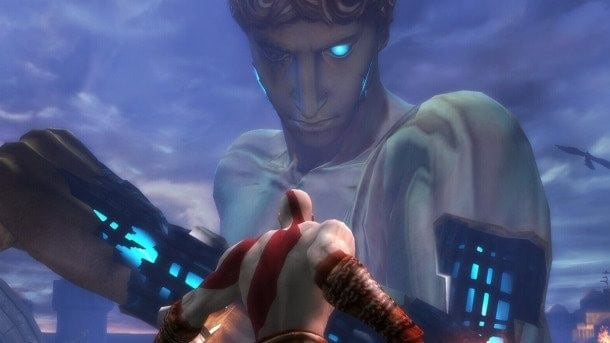
©God of War II gameplay screenshot - Original
- Release Date — March 13, 2007
- Platform — PlayStation 2
- Review Aggregate Score — 93% (Universal Acclaim)
The second entry in the original trilogy of God of War games elevates everything about its predecessor while sticking closely to the rulebook that made the original such a success. The result? God of War II is bigger, better, more violent, and more inventive in terms of its combat and puzzle-solving mechanics. The environments and biomes that Kratos adventures through in the sequel are landmarks of Greek mythology, presented in a breathtaking scale that hammers home their legendary nature. Ultimately, God of War II establishes the franchise’s ability to avoid a sophomore slump, cementing the series as one of the main reasons to own a PlayStation console.
Killzone 2
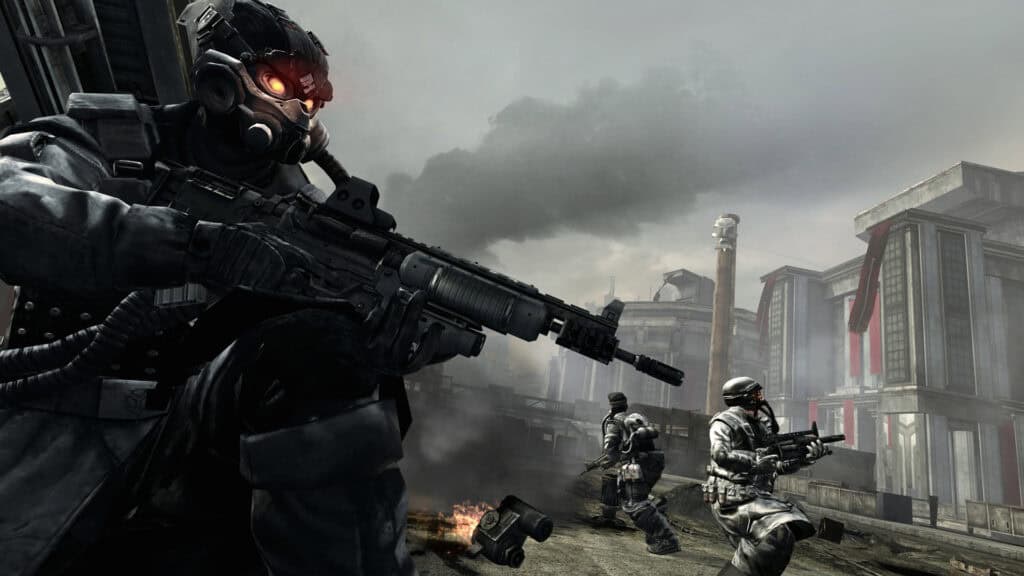
©Killzone 2 gameplay screenshot - Original
- Release Date — February 27, 2009
- Platform — PlayStation 3
- Review Aggregate Score — 91% (Universal Acclaim)
While the first Killzone game was a victim of its launch on the PlayStation 2 and the technical limitations that it suffered from as a result, Killzone 2‘s arrival on the PlayStation 3 placed it as one of the definitive shooters of the 7th generation and a must-have first-party exclusive. The game’s deeper examination of the two sides at the center of the franchise’s main conflict provides more incentive for players to keep pushing and see the thrilling story to its conclusion, and the subtle nuances the title introduces to FPS gameplay (such as an interesting cover-shooting mechanic and changes to pilot vehicles during campaign missions) help it stand out from contemporaries.
Uncharted 2: Among Thieves
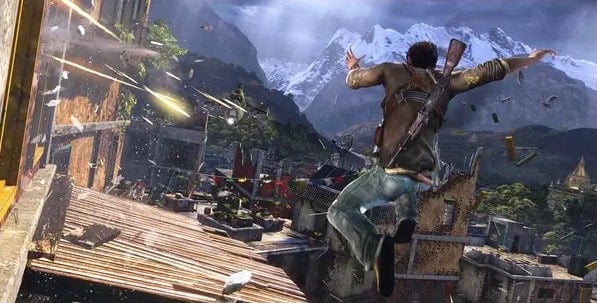
©Uncharted 2 gameplay screenshot - Original
- Release Date — October 13, 2009
- Platform — PlayStation 3
- Review Aggregate Score — 96% (Universal Acclaim)
Like God of War II and Killzone 2 before it, Uncharted 2 is a sequel to a first-party Sony game that stands tall above its predecessor and improves upon nearly every aspect of it. With a better narrative, a more interesting setting, and a non-stop sequence of setpiece moments that rival the best Hollywood blockbusters, Uncharted 2 is arguably the best game in Naughty Dog’s adventure series and a generation-defining title for the PlayStation 3.
God of War III
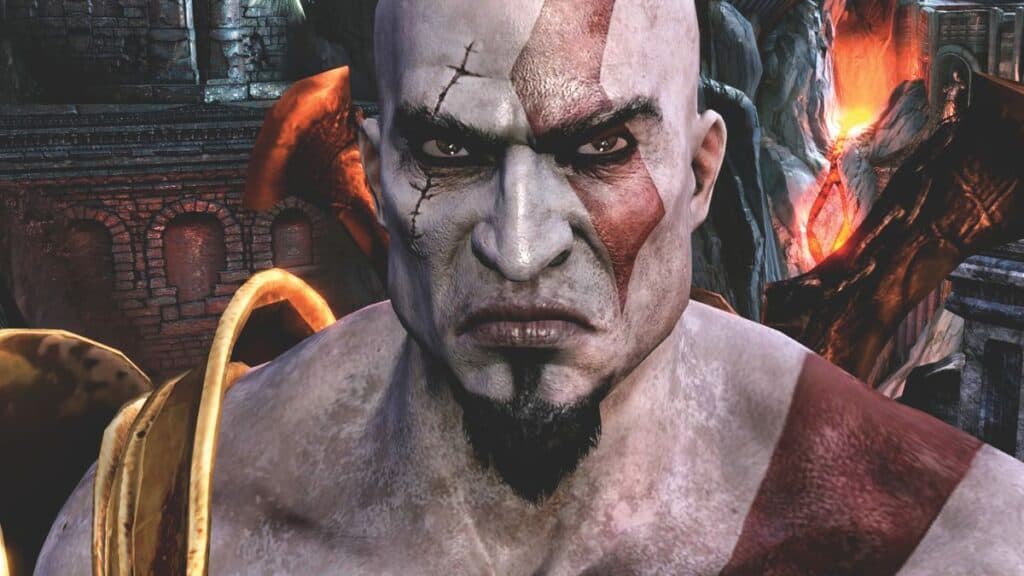
©God of War III gameplay screenshot - Original
- Release Date — March 16, 2010
- Platform — PlayStation 3
- Review Aggregate Score — 92% (Universal Acclaim)
The thrilling conclusion to Kratos’ Greek mythology trilogy makes good on the former god of war’s promise to get revenge on all of Mount Olympus. Not much changes gameplay-wise between God of War II and God of War III, but that’s not necessarily a bad thing given how excellent the sequel’s combat, traversal, and puzzle-solving were and are to this day. The standout of God of War III are its impressive visuals (which still shine two full console generations later) and powerful, violent ending to the saga of Kratos and his tragic tale of love, loss, and revenge.
Dead Nation
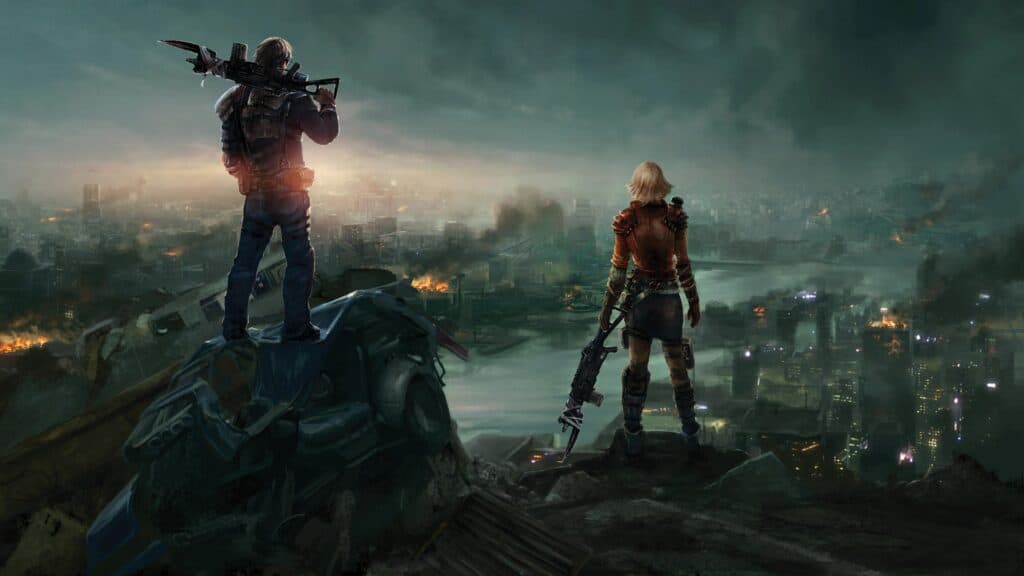
©Dead Nation official artwork - Original
- Release Date — November 30, 2010
- Platform — PlayStation 3
- Review Aggregate Score — 77% (Generally Favorable)
Housemarque would end up being one of the best studio acquisitions Sony ever made, as evidenced by the fact that the developer has three different titles on our list of the best Sony Interactive Entertainment games. The earliest of them is the excellent twin-stick shooter Dead Nation, which takes the core gameplay loop of classics like Robotron and slaps some impressive visuals on it along with an understanding of what makes a frantic, arcade-style shooter tick. Zombie games were practically a dime-a-dozen during the 2010s, but Dead Nation nails its genre so perfectly that it sticks out from the herd.
Infamous 2
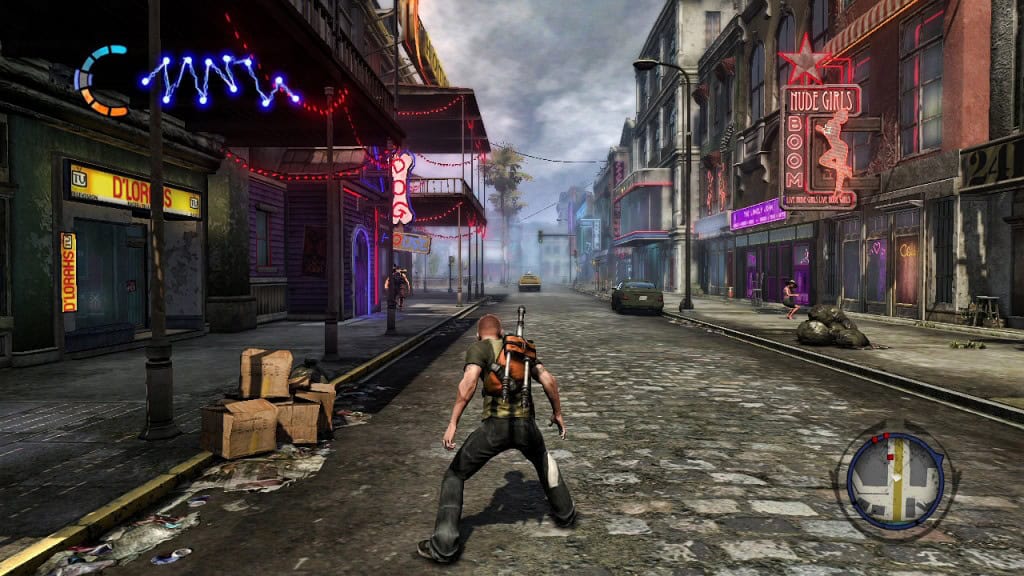
©Infamous 2 gameplay screenshot - Original
- Release Date — June 7, 2011
- Platform — PlayStation 3
- Review Aggregate Score — 83% (Generally Favorable)
After producing three excellent titles for the PS2 in the phenomenal Sly Cooper games, Sony first-party developer Sucker Punch would set its sights on the open-world action genre. However, unlike the Grand Theft Auto games, Sucker Punch’s open-world series Infamous uses superheroes as the backdrop for its sandbox, giving the player some truly incredible abilities that transform how the game’s open-world traversal works and eschewing the need for automobiles. The first Infamous introduces the complex morality system that underlines each of the protagonist’s decisions, but the sequel improves on that formula through a more impressive open world and less clear-cut delineation between “good” and “evil” choices.
Resistance 3
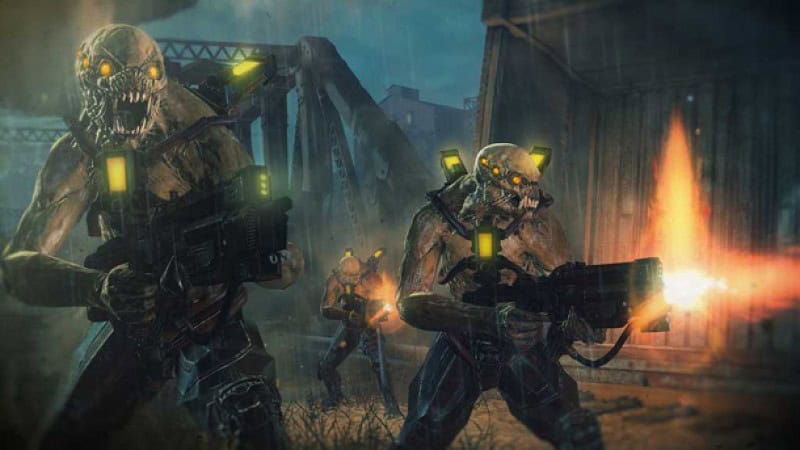
©Resistance 3 gameplay screenshot - Original
- Release Date — September 6, 2011
- Platform — PlayStation 3
- Review Aggregate Score — 83% (Generally Favorable)
The first Resistance game would end up being one of the great launch titles for the PlayStation 3, to where the disappointing sequel felt like it could have been the nail in the series’ coffin. Thankfully, Insomniac would come back for a third and final game in the series that rights the wrongs of Resistance 2 and delivers on a fully realized vision of what the first game could have been, squeezing every inch of power out of the PS3. Ultimately, the Resistance games harken back to the FPS classics at a time when every modern FPS was gunning for realism, reminding players that frantic shooting action with outrageous weapons is a recipe for a good time.
Journey
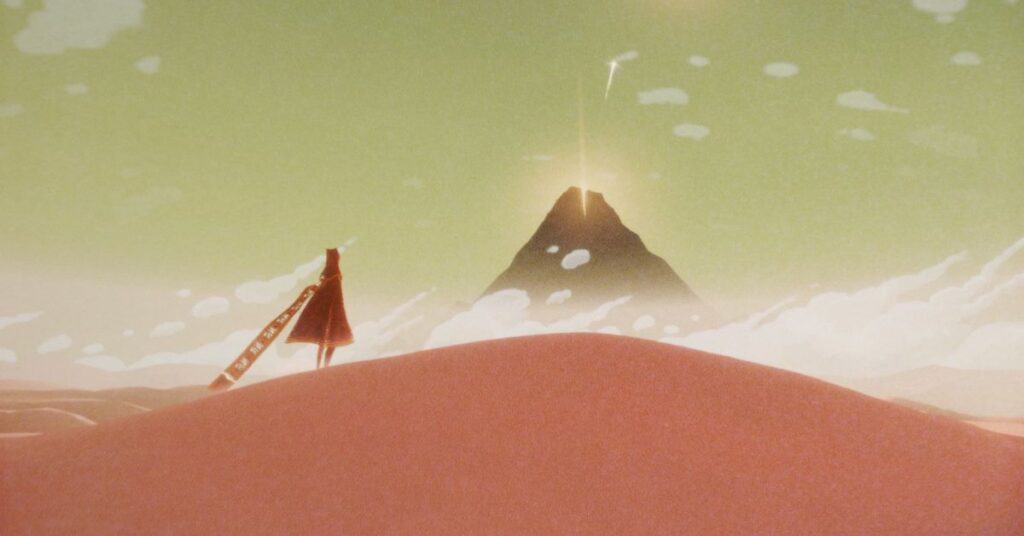
©Gameplay screenshot - Original
- Release Date — March 13, 2012
- Platform — PlayStation 3
- Review Aggregate Score — 92% (Universal Acclaim)
Thatgamecompany’s Journey is one of the primary examples that gets touted anytime someone brings up the idea of “video games as art”, and playing through the game makes it easy to see why. Though its interactive elements essentially amount to walking toward a distant goal, the environmental storytelling and atmosphere of Journey help elevate it to being a transcendent experience that pushes the limits of what’s possible in interactive media. That the game originated as a PS3 title makes it a defining first-party Sony title. Journey is one of those meditative titles that every gamer deserves to play through at least once.
The Last of Us
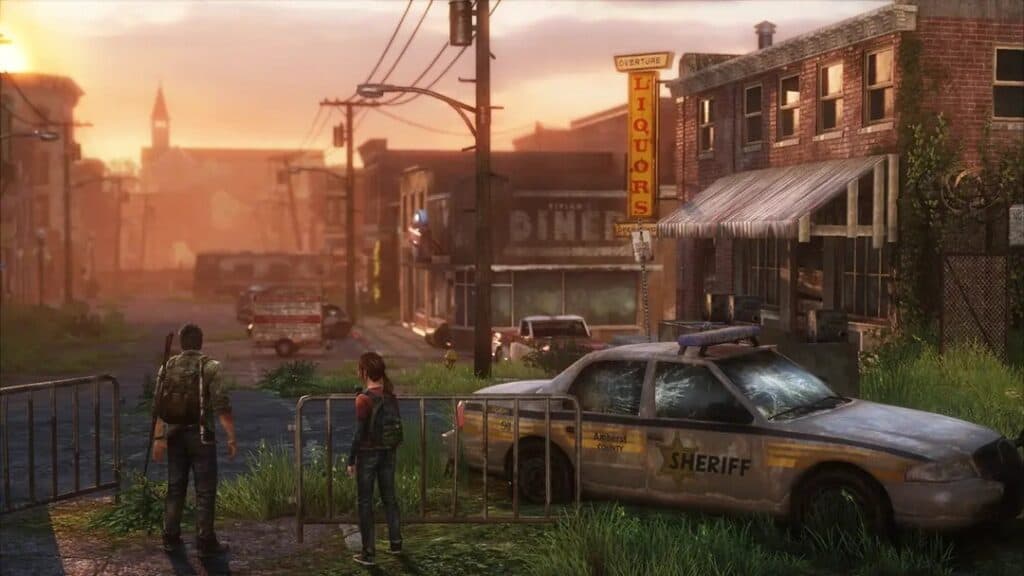
©The Last of Us gameplay screenshot - Original
- Release Date — June 14, 2013
- Platform — PlayStation 3
- Review Aggregate Score — 95% (Universal Acclaim)
Naughty Dog’s The Last of Us continues the company’s tradition of crafting excellent games with strong narratives but takes a sharp left turn from the globe-trotting adventure of Uncharted toward the dour and depressing vision of a post-apocalyptic America. The Last of Us is ultimately a cautionary tale about love and the lengths humans go to for those they love, and it raises the question of who is the greatest threat to humanity — outside actors bringing on mankind’s downfall or mankind themselves. Framing this excellent narrative is a spectacular third-person stealth-action game with more than its fair share of frightening moments that stick with you long after the credits roll.
Resogun
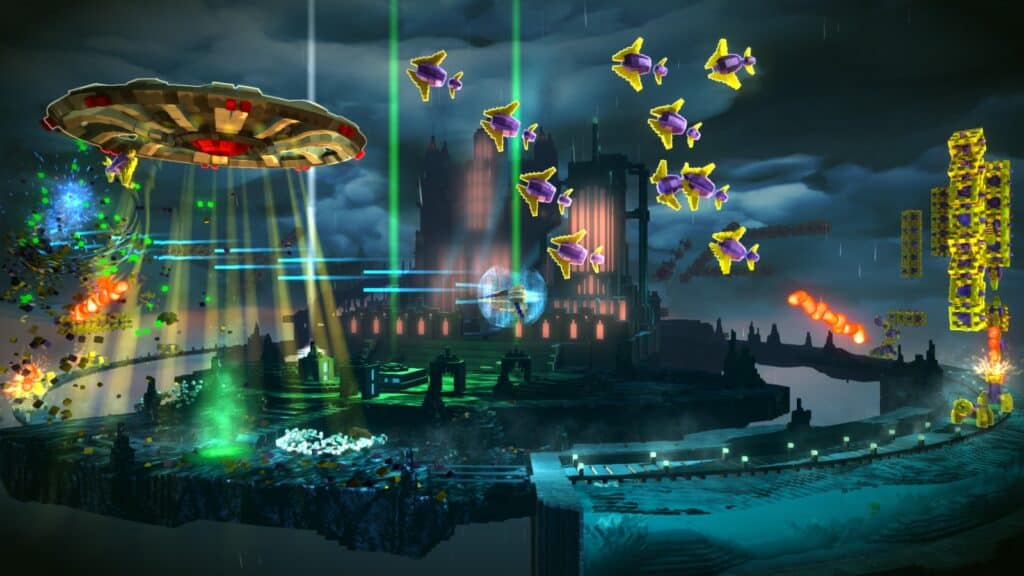
©Resogun gameplay screenshot - Original
- Release Date — November 15, 2013
- Platform — PlayStation 4
- Review Aggregate Score — 84% (Generally Favorable)
Housemarque’s next major title for the PlayStation would end up being one of the definitive first-party launch titles for the PS4 and a highlight of the PlayStation Network, Resogun. This horizontally-scrolling shmup uses a unique “loop” mechanic where the player needs to consider not just the space in front of and behind them but also above and below them, circling around cylindrical arenas while seemingly endless waves of enemies spawn to a killer soundtrack and some truly spectacular lighting and visuals. Resogun is as much about its presentation as its gameplay, and it would serve as an excellent showpiece for the power of the PS4.
LittleBigPlanet 3
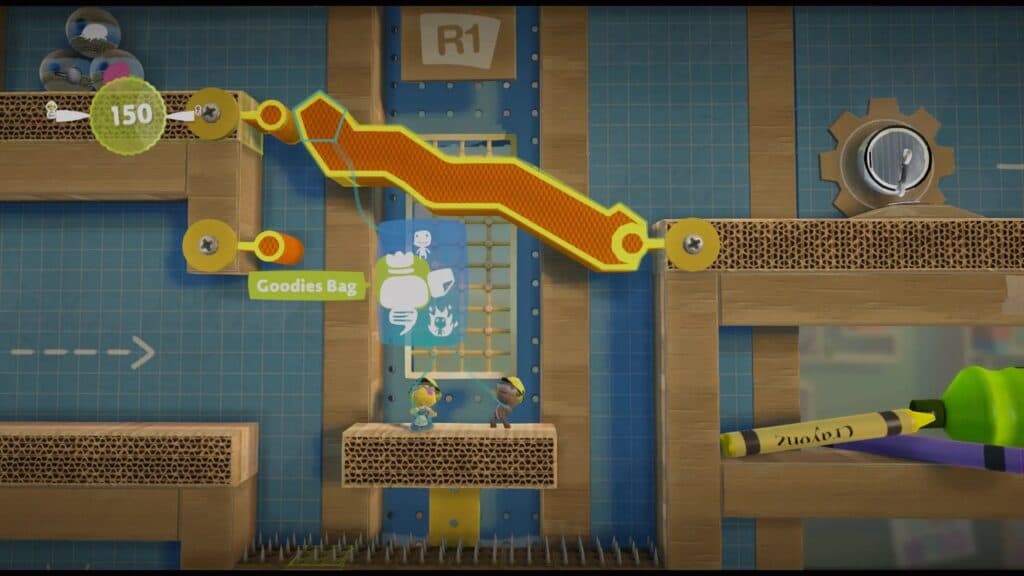
©LittleBigPlanet 3 gameplay screenshot - Original
- Release Date — November 18, 2014
- Platform — PlayStation 4
- Review Aggregate Score — 79% (Generally Favorable)
Though the LittleBigPlanet franchise is effectively dead now, there was a time when the future of platforming seemed to hinge on its unfettered creativity and embracing of player-made levels. The highlight of the LittleBigPlanet games has always been the community levels made by players, and LittleBigPlanet3 is both the latest and greatest game in the series thanks to its inclusion not just of its own signature stages but every single player-made level that had ever been uploaded across the trilogy of LittleBigPlanet games.
Bloodborne
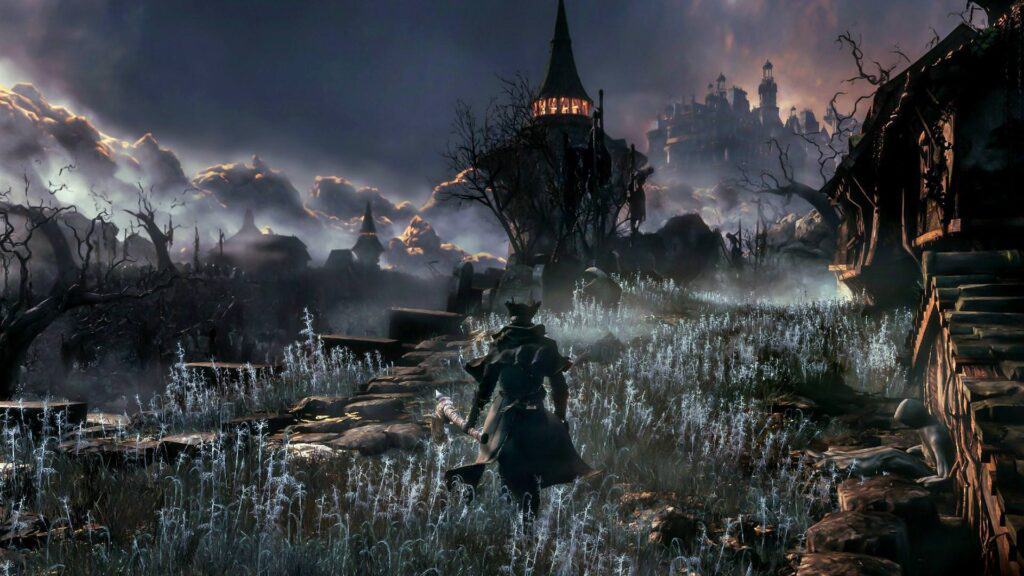
©Bloodborne gameplay screenshot - Original
- Release Date — March 24, 2015
- Platform — PlayStation 4
- Review Aggregate Score — 92% (Universal Acclaim)
FromSoftware’s Bloodborne is the only game in the studio’s Soulsborne line of titles to have the distinction of being a first-party Sony game, and it’s also arguably the best FromSoftware title outside of Elden Ring. This gothic horror-turned-cosmic horror action RPG takes all the best elements from the Dark Souls series but places a greater emphasis on speed and aggression, rewarding players for rushing into encounters and pressing the enemy through unique mechanics like regaining health and staggering foes through use of firearms rather than defensive shields. Bloodborne‘s atmosphere and combat make it a highlight in both the FromSoftwareand PS4 libraries, and it’s a shame we have yet to receive a sequel.
Until Dawn

©Until Dawn gameplay screenshot - Original
- Release Date — August 25, 2015
- Platform — PlayStation 4
- Review Aggregate Score — 79% (Generally Favorable)
While it’s not so much a game as it is an interactive movie, Until Dawn blends some of the best parts of old-school point-and-click adventure games with slick presentation, impressive facial capture and animation technology, and a slasher-film plot that feels like it’s ripped straight out of the horror film genre’s highlight reel. The title might be light on actual gameplay, but its story and novel approach to interactive filmmaking make multiple playthroughs practically a necessity. Better yet, playing Until Dawn in a group of people and coming to a group consensus on the choices made is a raucous experience not had enough in gaming.
Uncharted 4: A Thief’s End
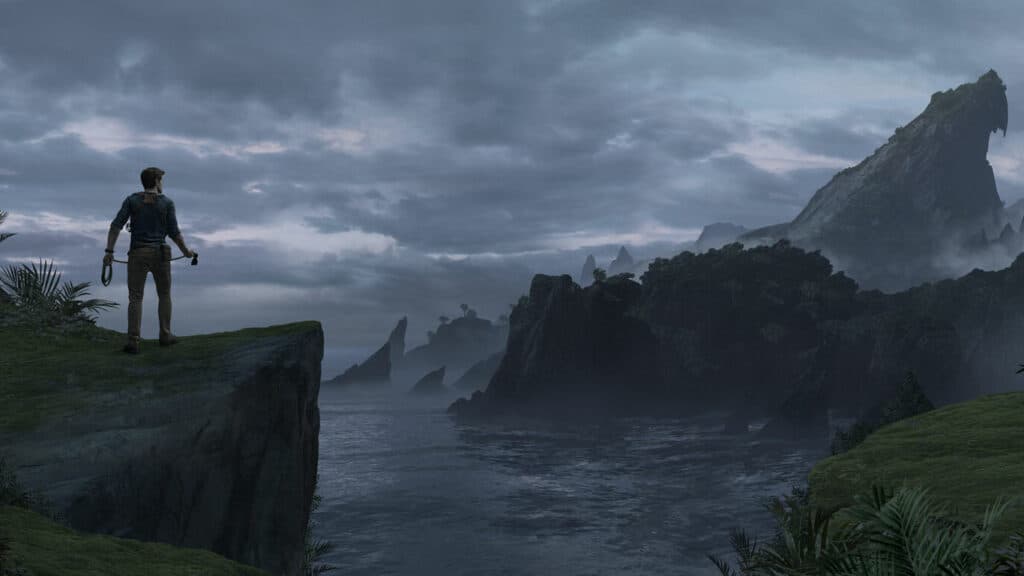
©Uncharted 4 gameplay screenshot - Original
- Release Date — May 10, 2016
- Platform — PlayStation 4
- Review Aggregate Score — 93% (Universal Acclaim)
The conclusion to the saga of Nathan Drake and final game in the Uncharted series is a bittersweet swansong to one of the most important first-party Sony franchises, emphasizing all the best parts of the initial trilogy and pushing the envelope in terms of its traversal and combat. Story is still the crux of what moves players along in Uncharted 4, and getting to meet Nathan’s long-lost brother and see the happy ending that Naughty Dog had in store for fans makes the destination just as worthwhile as the journey to get there. A pinnacle of Sony PlayStation exclusives and a great example of how to stick the landing for a beloved franchise.
Horizon Zero Dawn
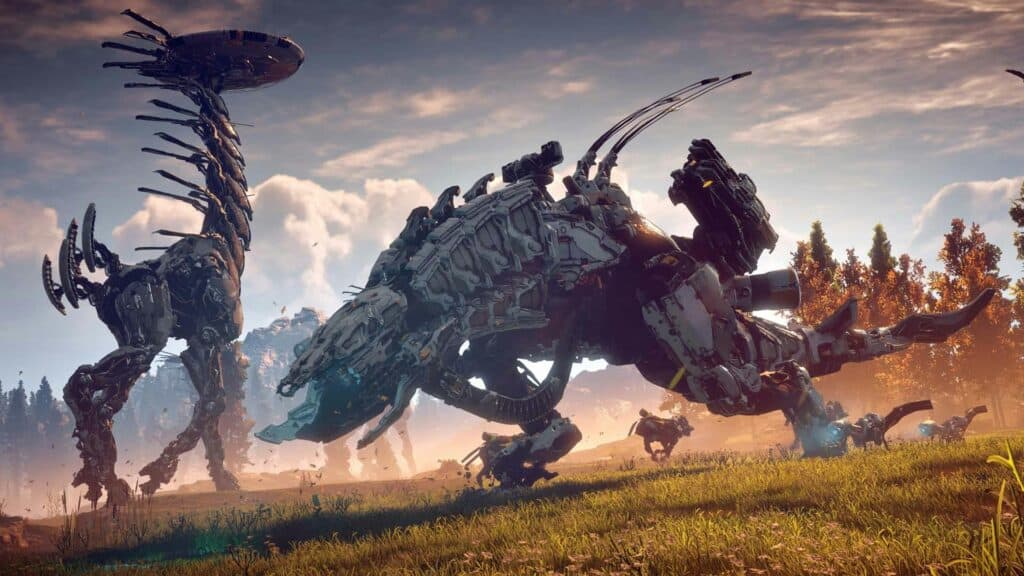
©Horizon Zero Dawn gameplay screenshot - Original
- Release Date — February 28, 2017
- Platform — PlayStation 4
- Review Aggregate Score — 89% (Generally Favorable)
Guerilla Games would prove itself as one of Sony’s most important first-party developers with the excellent Killzone franchise, but the studio’s next series would end up being an even more important pillar in the PlayStation exclusive lineup. Horizon Zero Dawn is the excellent first game in what’s now a continuing franchise, taking Guerilla’s penchant for captivating visuals and engaging combat and transposing it into a third-person open-world action-adventure game that takes place in a distant future where technological apocalypse sees humanity revert to a primitive state. Aloy is a phenomenal main character, and despite Horizon‘s reliance on familiar open-world mechanics, its combat and traversal are second-to-none.
God of War (2018)
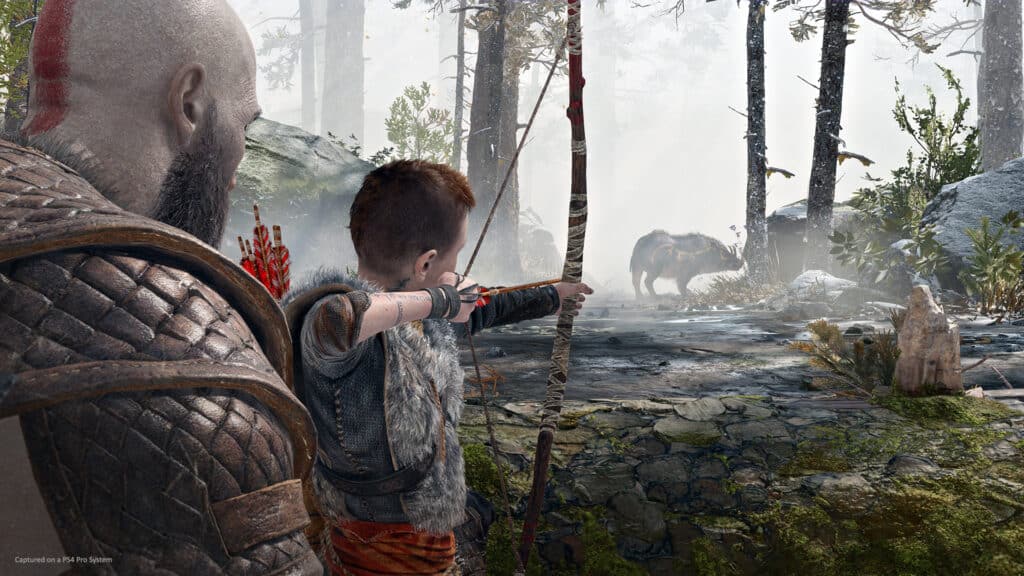
©Screenshot of God of War. - Original
- Release Date — April 20, 2018
- Platform — PlayStation 4
- Review Aggregate Score — 94% (Universal Acclaim)
Despite how widely regarded the initial trilogy of God of War games is, the Greek mythology saga doesn’t hold a candle to the excellence of the series’ reboot in 2018’s God of War. Now living in the realm of the Norse and having started a new family, the Kratos of the God of War reboot is a man in mourning, facing the prospect of becoming a single father after losing his beloved wife and seeing the tragedy of his past play out again in a cruel twist of fate. The brilliance of its narrative aside, God of War reminds us that Kratos is a force to be reckoned with, father or not, and the combat, puzzles, and traversal are each some of the best the series has ever seen.
Marvel’s Spider-Man
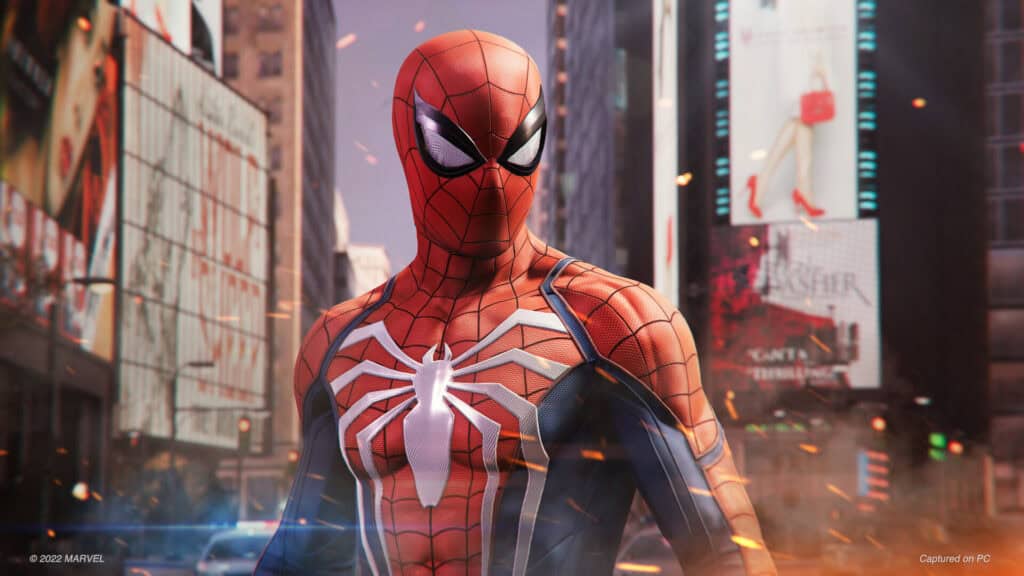
©Marvel's Spider-Man gameplay screenshot - Original
- Release Date — September 7, 2018
- Platform — PlayStation 4
- Review Aggregate Score — 87% (Generally Favorable)
Insomniac’s penchant for amazingly polished action-adventure games made them the perfect Sony studio to handle the PlayStation 4’s exclusive title using Marvel’s Spider-Man. Accordingly, the aptly named Marvel’s Spider-Man is one of the best open-world action games and one of the best superhero games, taking the formula that Rocksteady established with Batman: Arkham City and translating it into a game that absolutely nails the feeling of walking a mile in the Wall-Crawler’s shoes. Though it’s open-world gameplay and combat crib heavily from titles that come before it, there’s simply nothing else in gaming that compares to the feeling of swinging through New York City as Spider-Man.
Days Gone
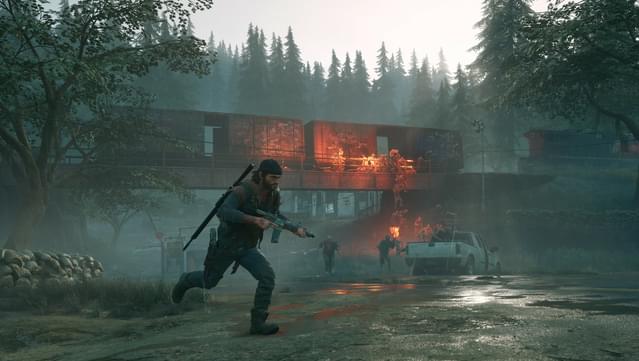
©Days Gone gameplay screenshot - Original
- Release Date — April 26, 2019
- Platform — PlayStation 4
- Review Aggregate Score — 71% (Mixed or Average)
Days Gone‘s initial mixed reception was the result of the game launching in a somewhat broken state, with several bugs and performance issues hindering players’ enjoyment of what’s otherwise an excellent open-world adventure and survival game from the same studio behind Syphon Filter. In hindsight, many players are now coming around to the fact that Days Gone is a great zombie game that makes good use of its primary traversal mechanic (the protagonist’s motorcycle) and features some heart-pounding chase sequences involving impressively dense zombie hordes.
Death Stranding
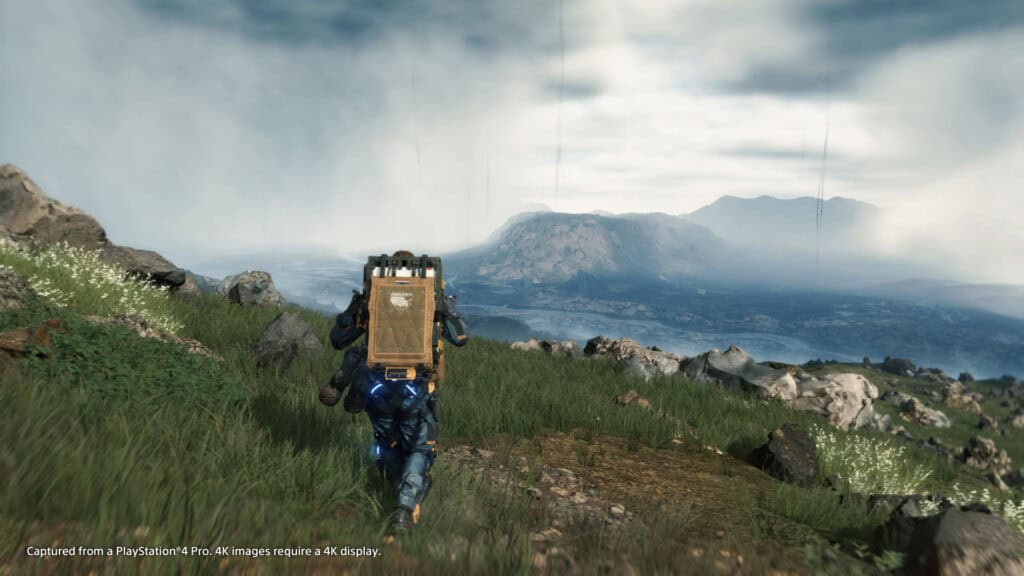
©Death Stranding gameplay screenshot - Original
- Release Date — November 8, 2019
- Platform — PlayStation 4
- Review Aggregate Score — 82% (Generally Favorable)
The unceremonious parting of ways between Konami and video game legend Hideo Kojima left the auteur without a home to land in, and Sony smartly scooped him up and gave him the funding to start his own new first-party studio, Kojima Productions. The studio’s initial game is Death Stranding, the thought-provoking examination of community and human connection that frames its captivating (and, at times, nonsensical) narrative through what amounts to a “package delivery simulator”. Where Death Stranding shines, though, is in its asymmetrical online mode that sees player contributions to the post-apocalypse carry over into other players’ game worlds, underlining the importance of human connection that the game’s narrative touches on.
The Last of Us Part II
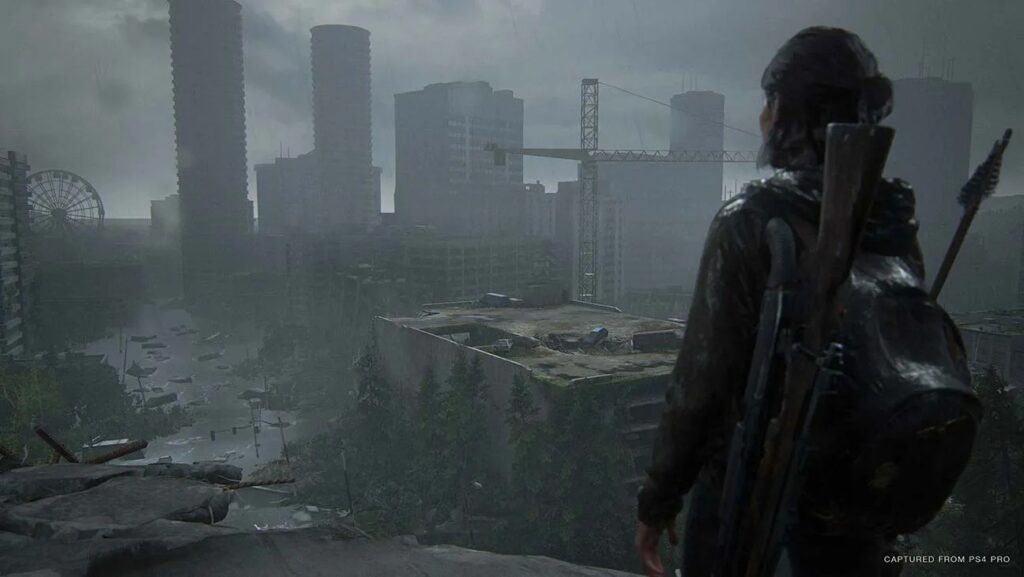
©The Last of Us Part II gameplay screenshot - Original
- Release Date — June 19, 2020
- Platform — PlayStation 4
- Review Aggregate Score — 93% (Universal Acclaim)
Controversy surrounding the game’s leaks and audience reception aside, The Last of Us Part II is a heart-wrenching examination of revenge and the lengths that people will go to to right a perceived wrong. Though the gameplay is largely the same as the first game in the series, several subtle refinements and improvements to the stealth mechanics make it much more satisfying on the whole. The moment-to-moment gameplay in The Last of Us Part II is essentially a more polished and feature-rich version of what players experienced in The Last of Us, but the game’s bleak picture of the post-apocalypse and refusal to pull any punches will have it stick with you long after putting the controller down.
Ghost of Tsushima
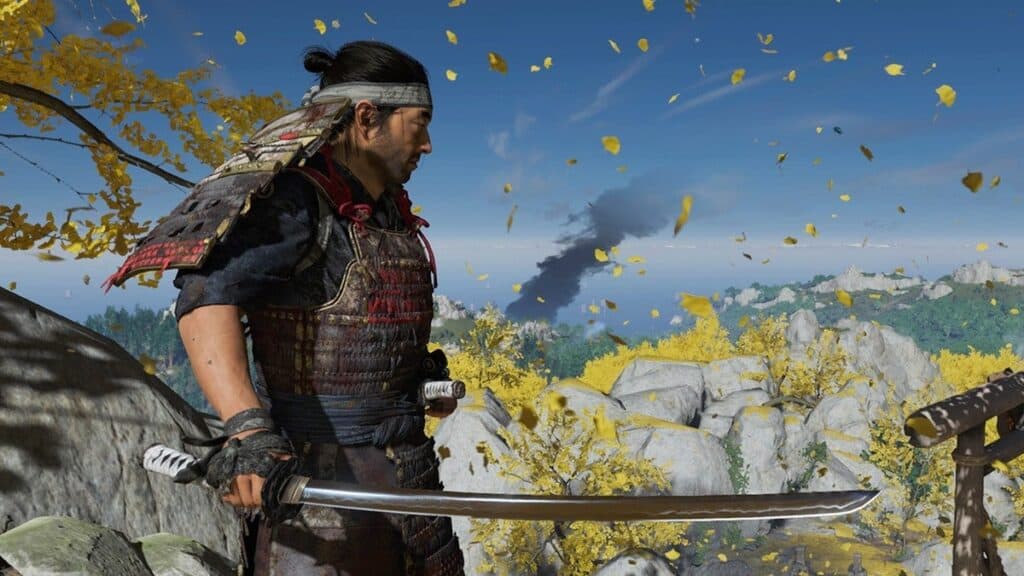
©Ghost of Tsushima gameplay screenshot - Original
- Release Date — July 17, 2020
- Platform — PlayStation 4
- Review Aggregate Score — 83% (Generally Favorable)
Like Insomniac before them, Sucker Punch would be yet another first-party Sony studio to attempt a massive open-world adventure game. Unlike Insomniac, though, who chose to use superheroes and licensed properties as the framework for their take on open-world game design, Sucker Punch would look to the stealth-action and historical accuracy of the Assassin’s Creed franchise for its open-world epic — Ghost of Tsushima. After years of a rumored Assassin’s Creed game taking place in feudal Japan, Sucker Punch beat Ubisoft to the table and even improved on the open-world Assassin’s Creed formula with stellar combat, an open-ended map with freeform exploration, and a poignant story about honor and duty.
Demon’s Souls
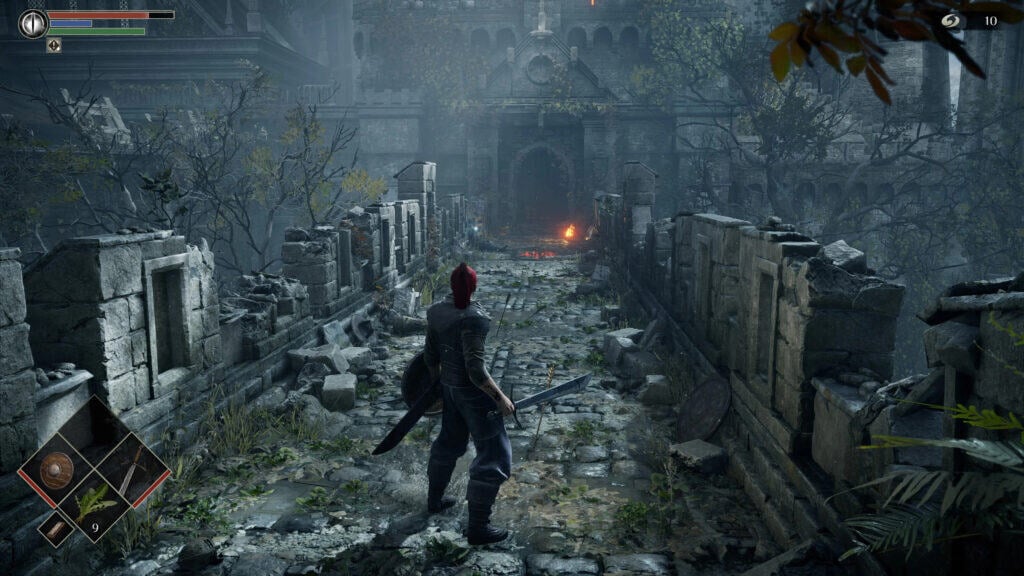
©Demon's Souls gameplay screenshot - Original
- Release Date — November 11, 2020
- Platform — PlayStation 5
- Review Aggregate Score — 92% (Universal Acclaim)
Bluepoint Games is one of the most valuable assets Sony has considering the studio’s proven talent at developing spectacular game remakes. Arguably the best remake in Bluepoint’s catalog is the phenomenal PS5 launch title Demon’s Souls, a ground-up remake of FromSoftware’s PS3 classic of the same name. The brilliance of Demon’s Souls shines through in how the remake doesn’t attempt to fix what isn’t broken, instead giving the visuals and presentation a significant overhaul to make the game look and run better than it ever could have on the PS3.
Marvel’s Spider-Man: Miles Morales
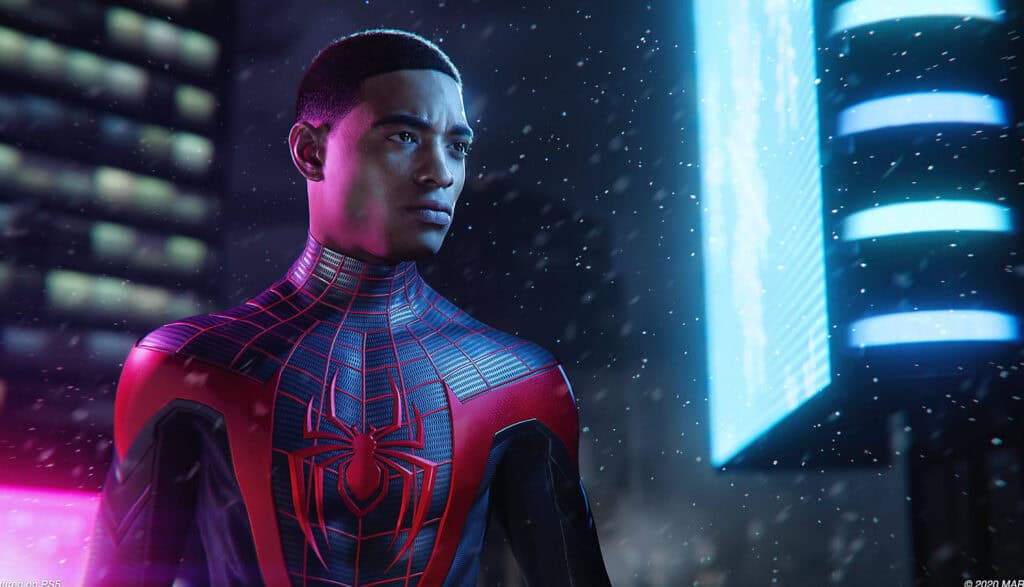
©Marvel's Spider-Man: Miles Morales gameplay screenshot - Original
- Release Date — November 12, 2020
- Platform — PlayStation 5
- Review Aggregate Score — 85% (Generally Favorable)
Miles Morales’ debut adventure as the “other” Spider-Man in the PS5 launch title of the same name is a phenomenal side-story that every fan of Marvel’s Spider-Man deserves to play. The more grounded tale has personal stakes for Miles, and the game does a great job of establishing how, despite them both donning the mantle of Spider-Man, Miles is a very different kind of hero than Peter Parker. Considering that the game also serves as the linking thread between the first Spider-Man and Marvel’s Spider-Man 2, Miles Morales is an essential PS5 title.
Returnal
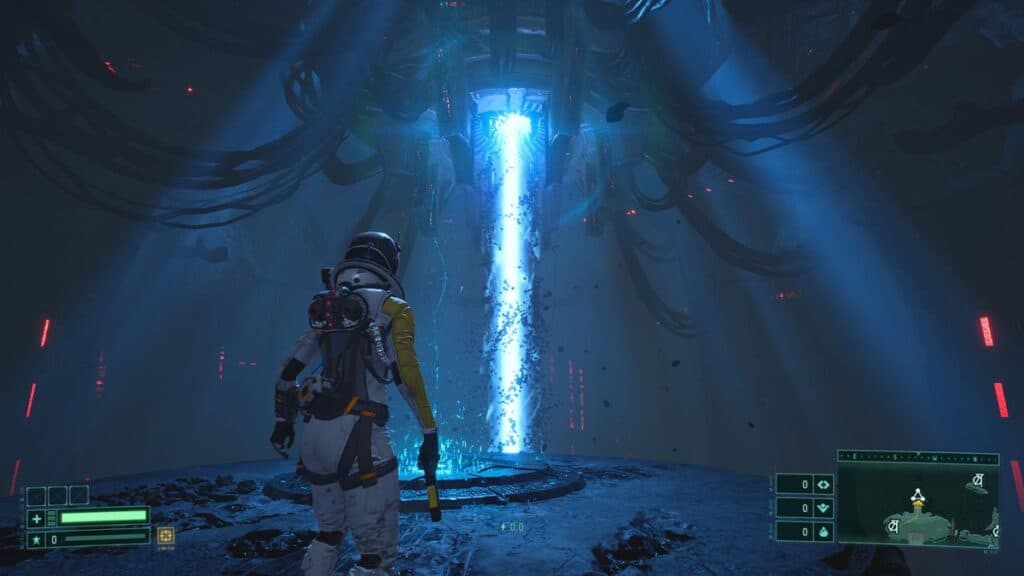
©Returnal gameplay screenshot - Original
- Release Date — April 30, 2021
- Platform — PlayStation 5
- Review Aggregate Score — 86% (Generally Favorable)
The most recent game from Housemarque, Returnal, is a culmination of the studio’s prior expertise and also a massive leap in terms of scope and scale compared to previous projects. Though it’s still a third-person bullet-hell shooter at heart, the over-the-shoulder perspective of controlling a human combatant in that kind of framework gives Returnal its own unique identity, and the responsive controls and meaningful progression are the secret ingredients that make this roguelike shine as a must-have PS5 exclusive.
Ratchet & Clank: Rift Apart
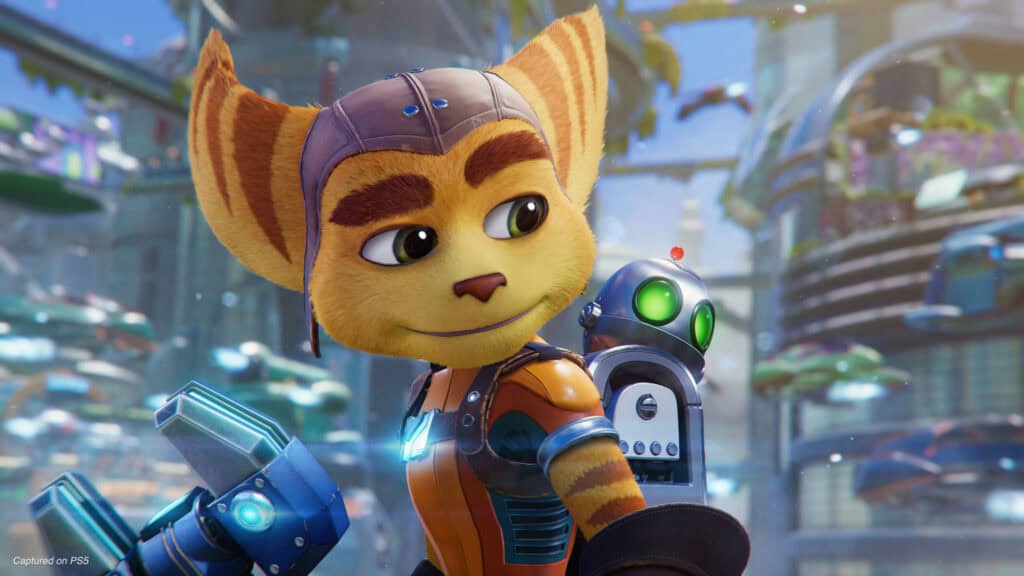
©Ratchet & Clank: Rift Apart gameplay screenshot - Original
- Release Date — June 11, 2021
- Platform — PlayStation 5
- Review Aggregate Score — 88% (Generally Favorable)
Other than the series’ third entry on PS2, it’s arguable that the best Ratchet & Clank game is the most recent entry in the franchise, Ratchet & Clank: Rift Apart. Not only does the title serve as an excellent technical benchmark for the PS5 with its stunning visuals and solid 60FPS gameplay, Ratchet & Clank: Rift Apart features some of the best platforming and shooting that the series has seen in years. Additionally, the game’s story is tightly-paced and features some excellent voice acting and dialogue, making Ratchet & Clank: Rift Apart rival the best animated features from Disney and Pixar.
Horizon Forbidden West
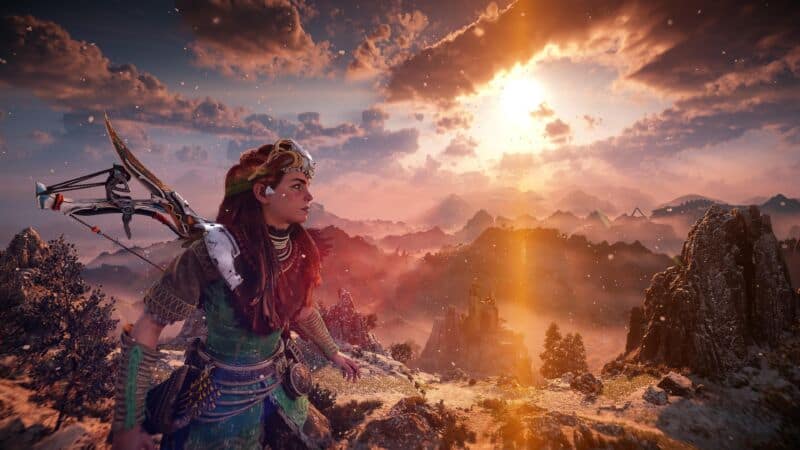
©Horizon Forbidden West gameplay screenshot - Original
- Release Date — February 18, 2022
- Platform — PlayStation 5
- Review Aggregate Score — 88% (Generally Favorable)
The second game in the burgeoning Horizon franchise, Horizon Forbidden West is a sterling example of how to do sequels right. Forbidden West fixes the minor complaints that players had about the first game (namely the common open-world tropes that bog down the genre), develops the protagonist Aloy in meaningful and interesting ways, and ups the stakes for the adventure that perfectly sets up a potential conclusion to a trilogy. Combat and traversal are even better in Forbidden West than they are in Zero Dawn, and the power of the PS5 also makes it one of the best-looking first-party exclusives.
Gran Turismo 7
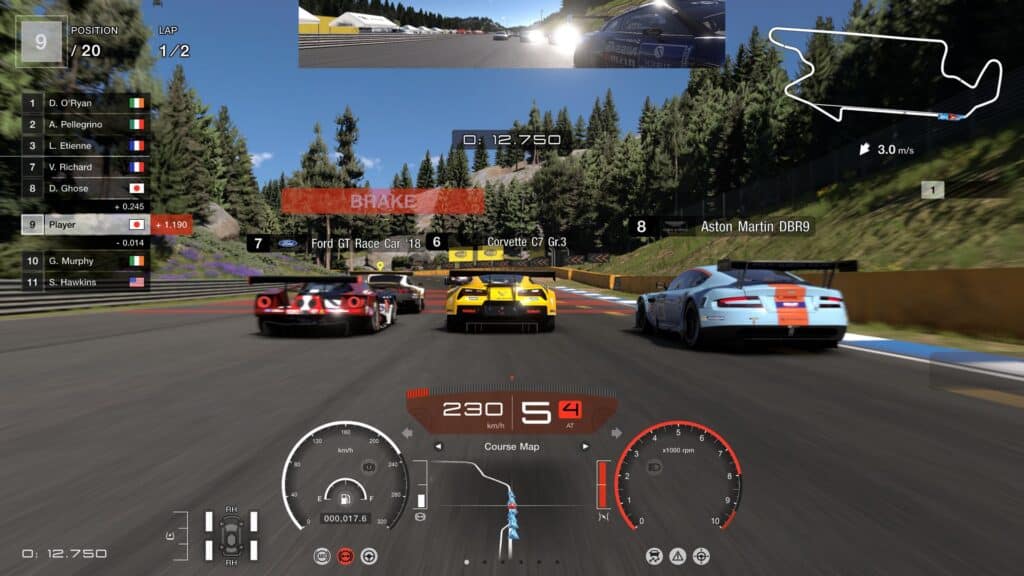
©Gran Turismo 7 gameplay screenshot - Original
- Release Date — March 4, 2022
- Platform — PlayStation 5
- Review Aggregate Score — 87% (Generally Favorable)
Since the original PlayStation, the release of a new Gran Turismo is an event for every iteration of Sony’s console. Accordingly, Gran Turismo 7 is one of the most exciting new entries in the simulation driving series in years, introducing new tracks, new cars, a massive career mode, excellent online multiplayer, and (for the first time) VR functionality. Playing Gran Turismo 7 on a TV is great enough, but getting the chance to experience the title with a racing wheel and a PSVR headset is something else altogether.
God of War Ragnarök

©God of War key art - Original
- Release Date — November 9, 2022
- Platform — PlayStation 5
- Review Aggregate Score — 94% (Universal Acclaim)
The core question that faces both Kratos and the players in God of War Ragnarök is whether fighting against fate is a futile gesture. It’s an interesting question given what players know about Kratos and his past from the rest of the God of War series, and it’s also an interesting meta-commentary on the nature of the God of War reboot itself. Playing God of War Ragnarök sends the message loud and clear that the new breed of God of War breaks free from the shackles of the past to chart its own course, and it’s all the better for it. If Ragnarök hadn’t released the same year as Elden Ring, there’s little doubt it would’ve swept up several Game of the Year awards.
Marvel’s Spider-Man 2

©Marvel's Spider-Man 2 gameplay screenshot - Original
- Release Date — October 20, 2023
- Platform — PlayStation 5
- Review Aggregate Score — 90% (Universal Acclaim)
Insomniac’s work on Marvel’s Spider-Man 2 shows that the studio is fully dialed into what fans want from a game featuring one of comics’ most enduring characters, with the sequel to the excellent first game ditching the open-world tropes in favor of more organic and natural open-world exploration of a painstakingly rendered New York City. The stakes are higher this time around for both Miles and Peter, with the adventure of the two Spider-Men testing their friendship and heroism in ways that neither they nor the player could have expected.
Helldivers II
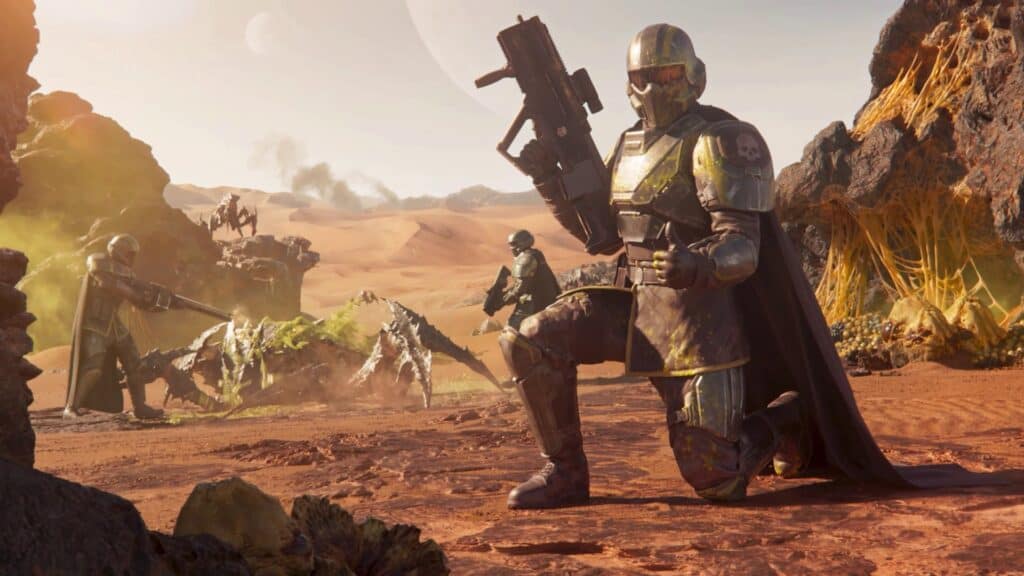
©Helldivers II promotional image - Original
- Release Date — February 8, 2024
- Platform — PlayStation 5
- Review Aggregate Score — 82% (Generally Favorable)
Though there’s already a co-op Starship Troopers shooter, Helldivers II gives it a run for its money in terms of being the best game to adapt the sardonic and satirical take on science fiction from Robert Heinlein’s original novel. The first Helldivers was an excellent twin-stick shooter (as well as a great Sony first-party exclusive), but Helldivers II ups the production values in just about every possible way and switches perspective to a behind-the-shoulder view placing players right in the action. Helldivers II is already one of the runaway success stories of 2024, and its place as a Sony exclusive is a shining feather in the PS5’s cap.
Rise of the Ronin
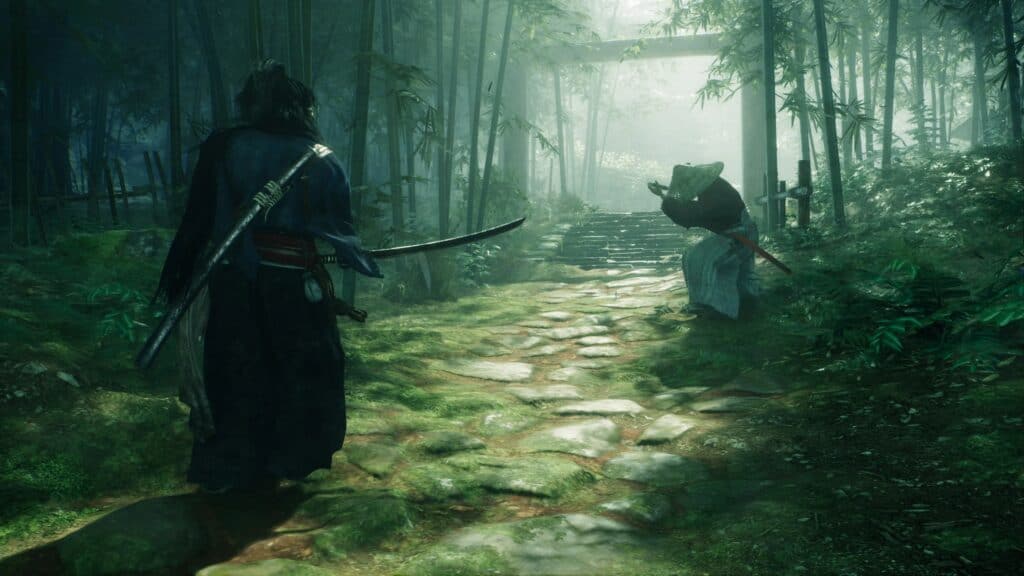
©Rise of the Ronin gameplay screenshot - Original
- Release Date — March 22, 2024
- Platform — PlayStation 5
- Review Aggregate Score — 76% (Generally Favorable)
Team Ninja’s Rise of the Ronin feels like the culmination of the studio’s ideas over the past several years, taking the mechanics of titles like Nioh and Wo Long and injecting them into a more accessible adventure with a historically accurate open-world sandbox. Though it does bear some similarities to Ghost of Tsushima, Rise of the Ronin‘s more contemporary setting (19th Century Japan) and emphasis on Soulslike combat and mechanics make it a unique blending of genres that is hard to put down.
The image featured at the top of this post is ©PlayStation Studios IP.
